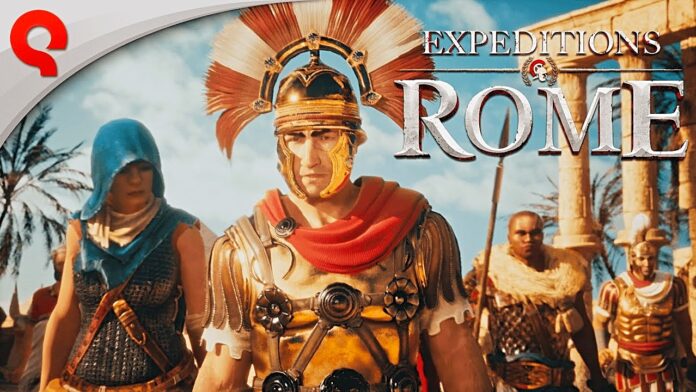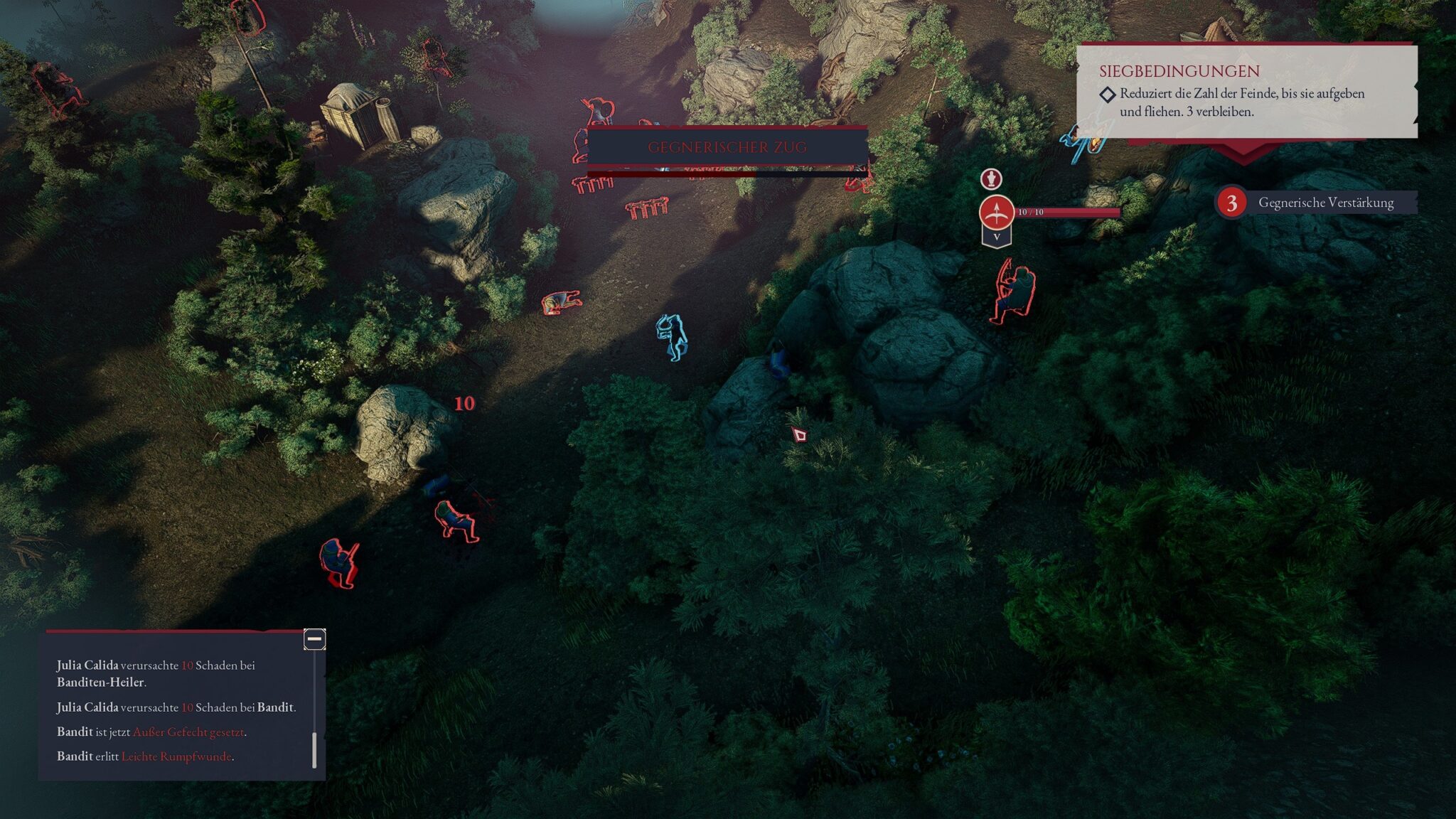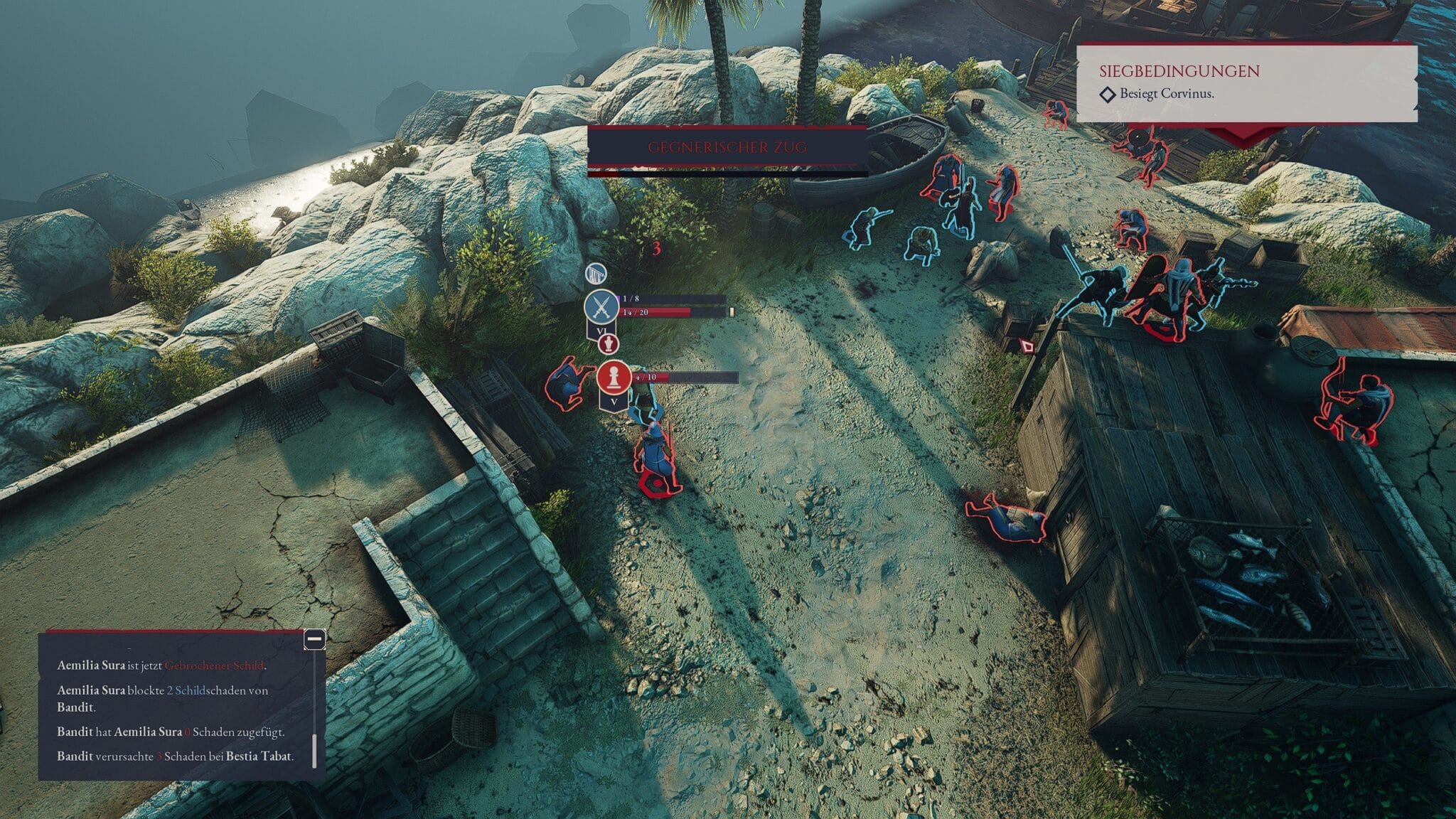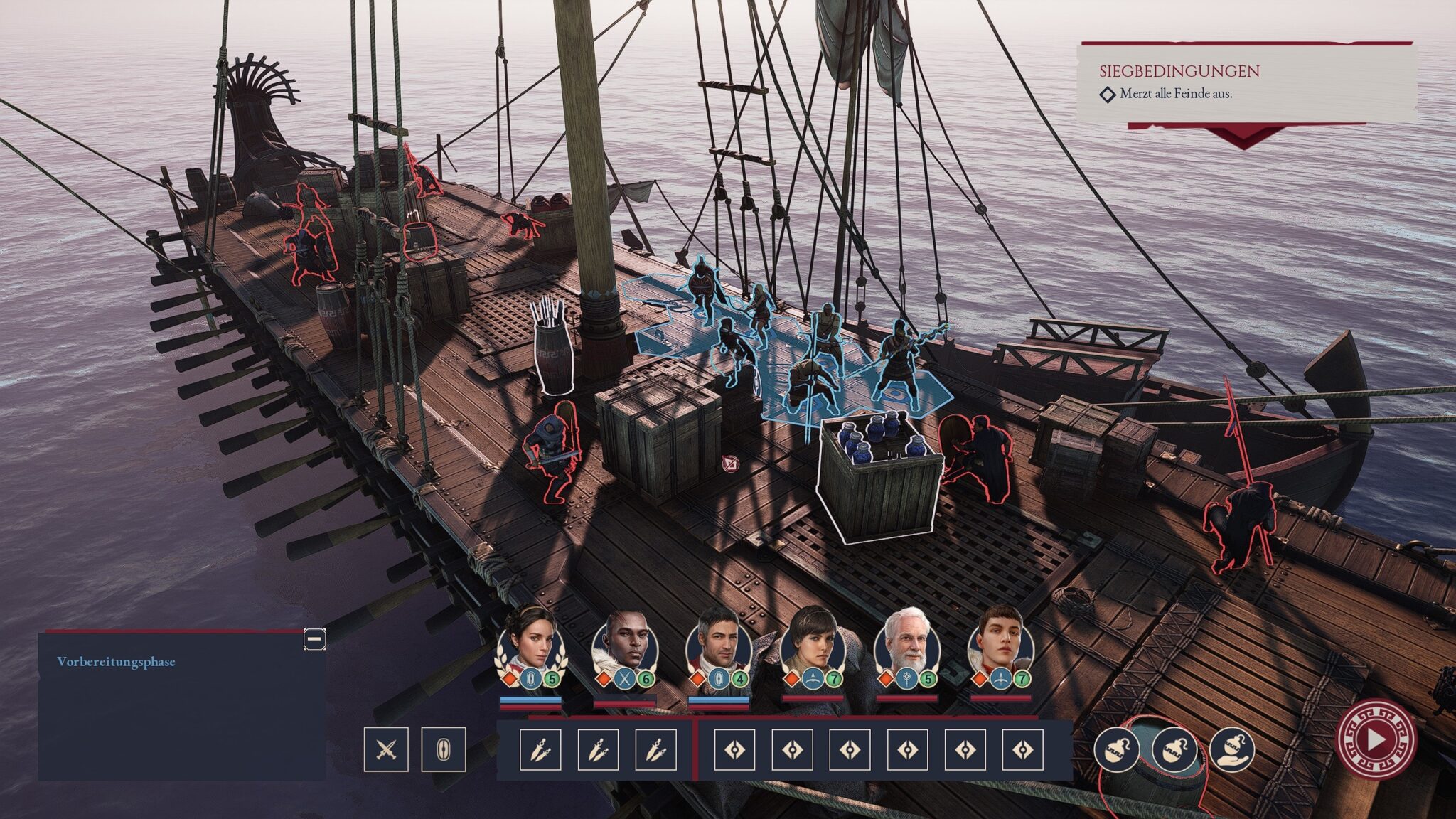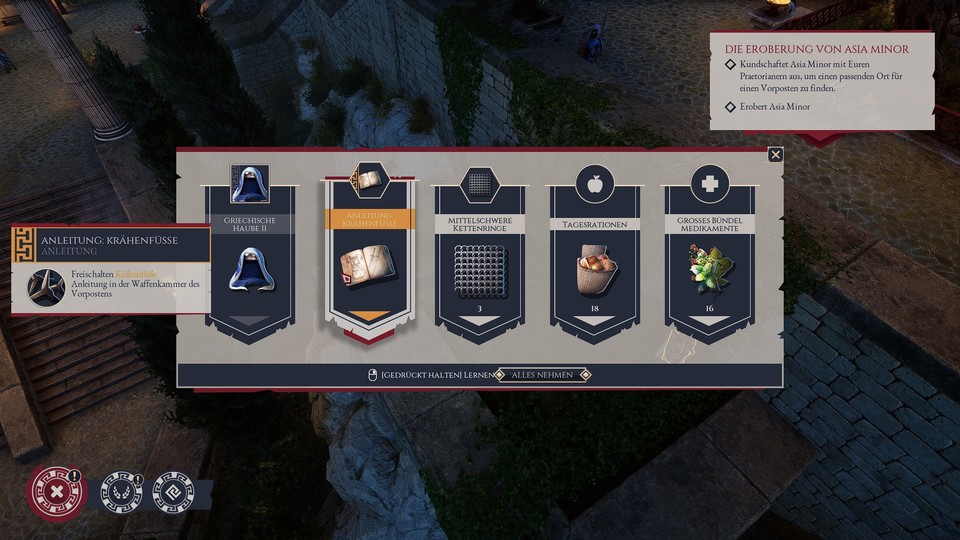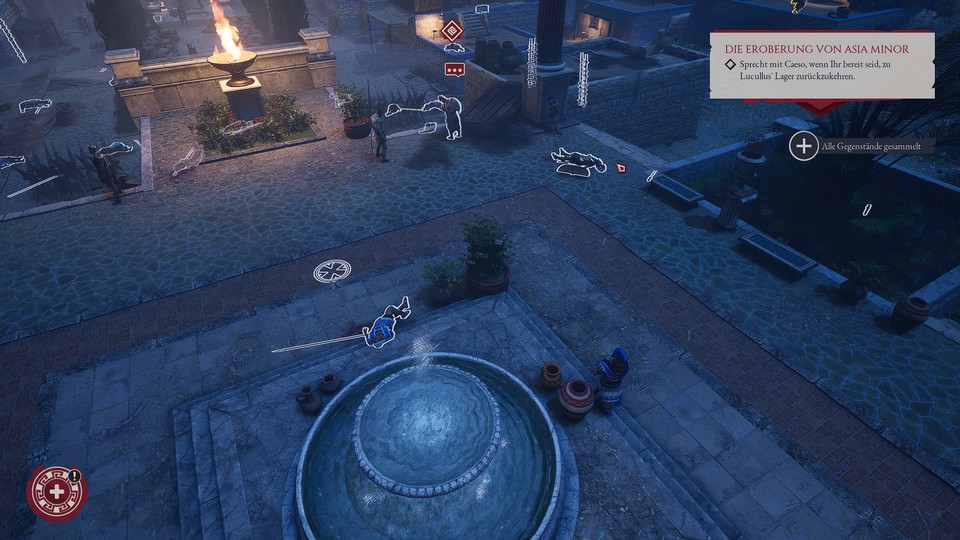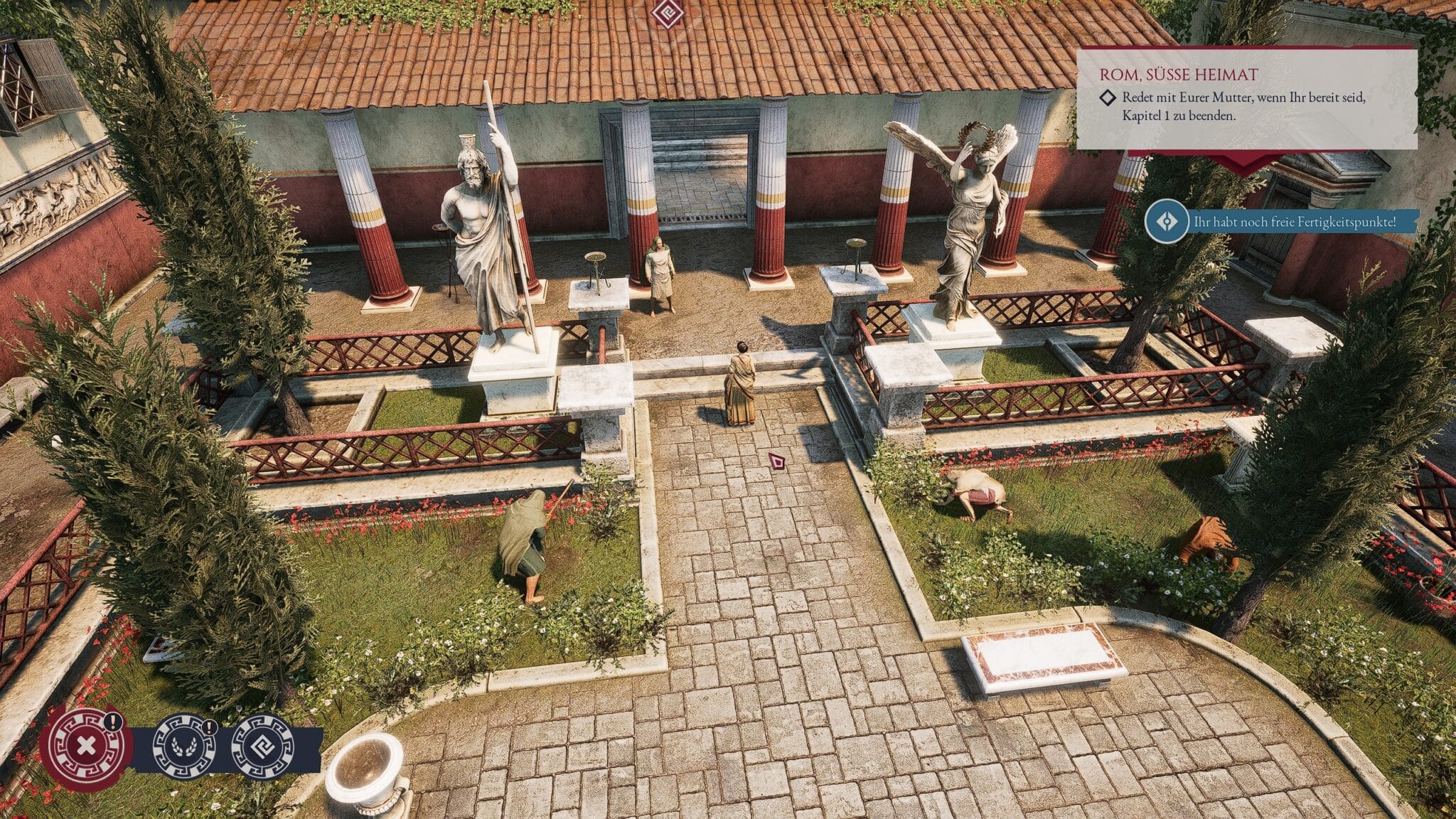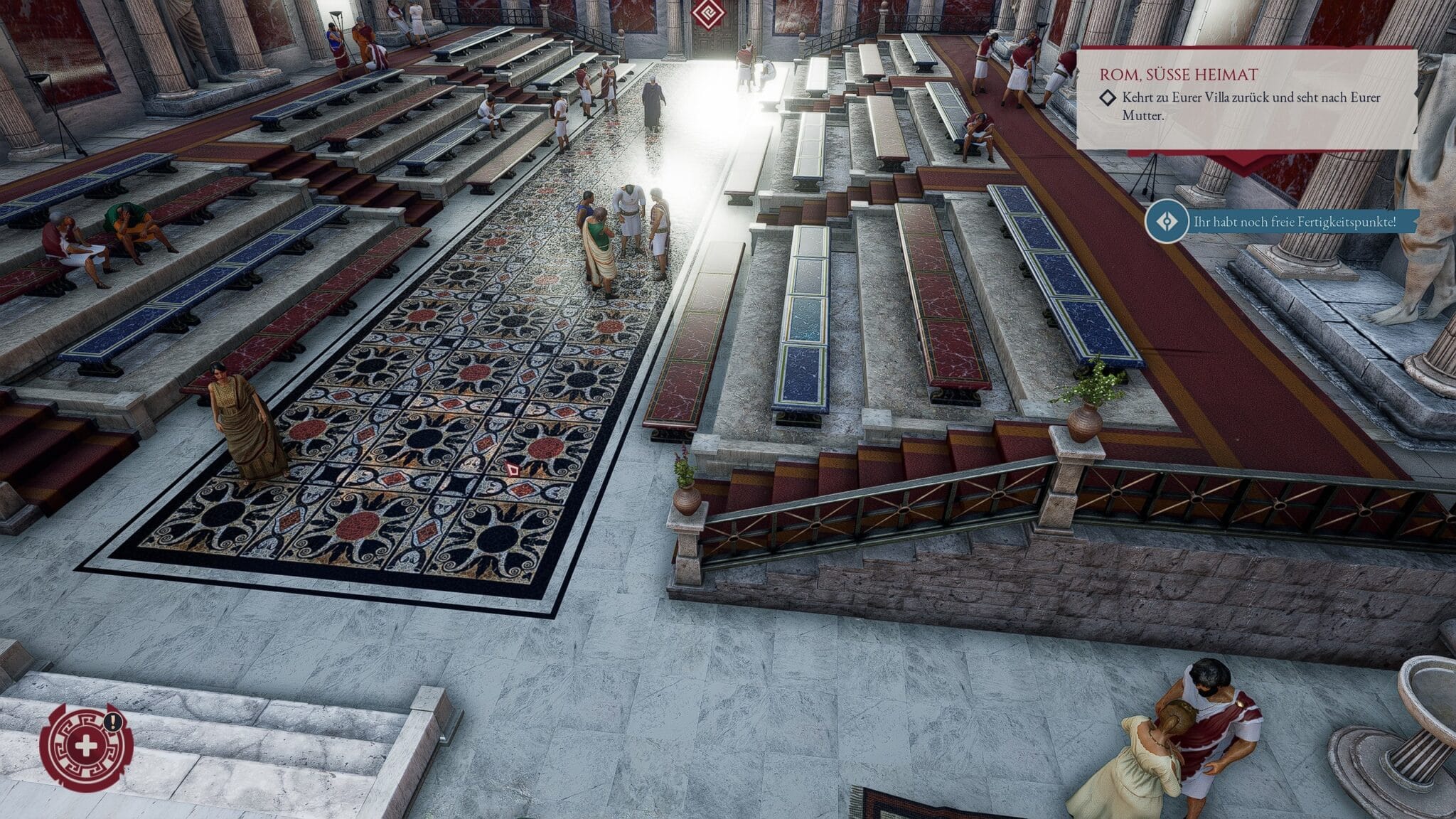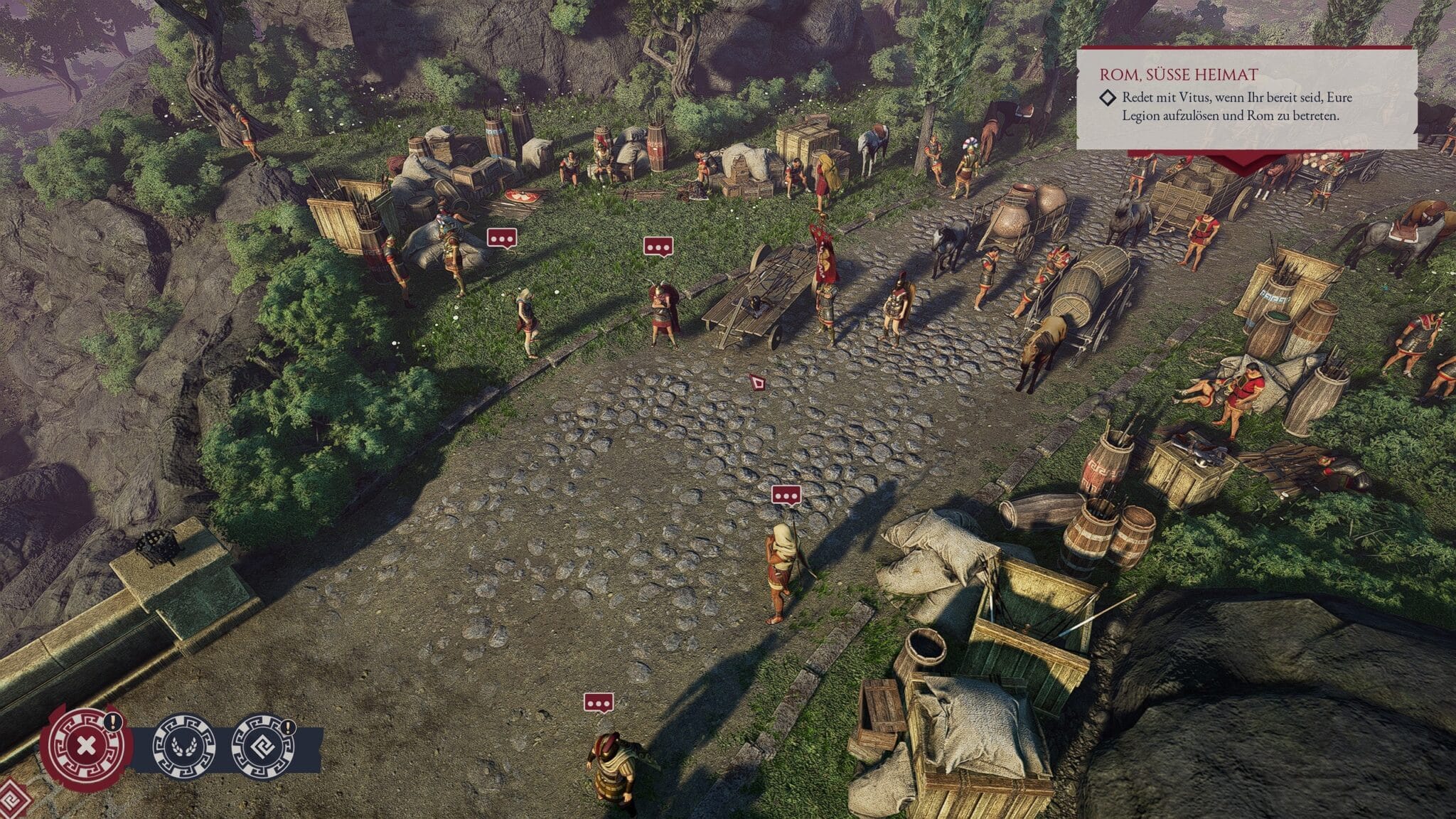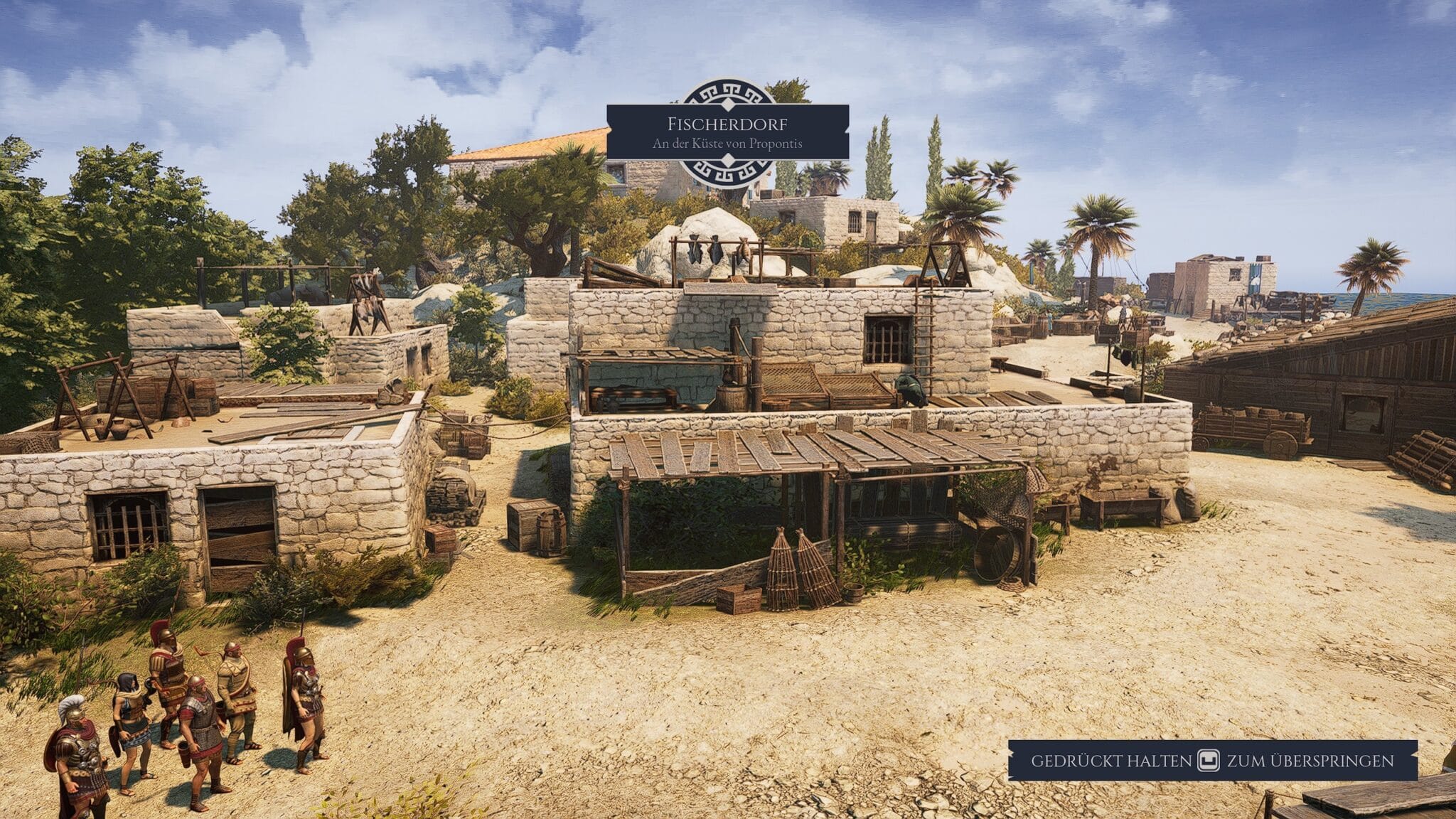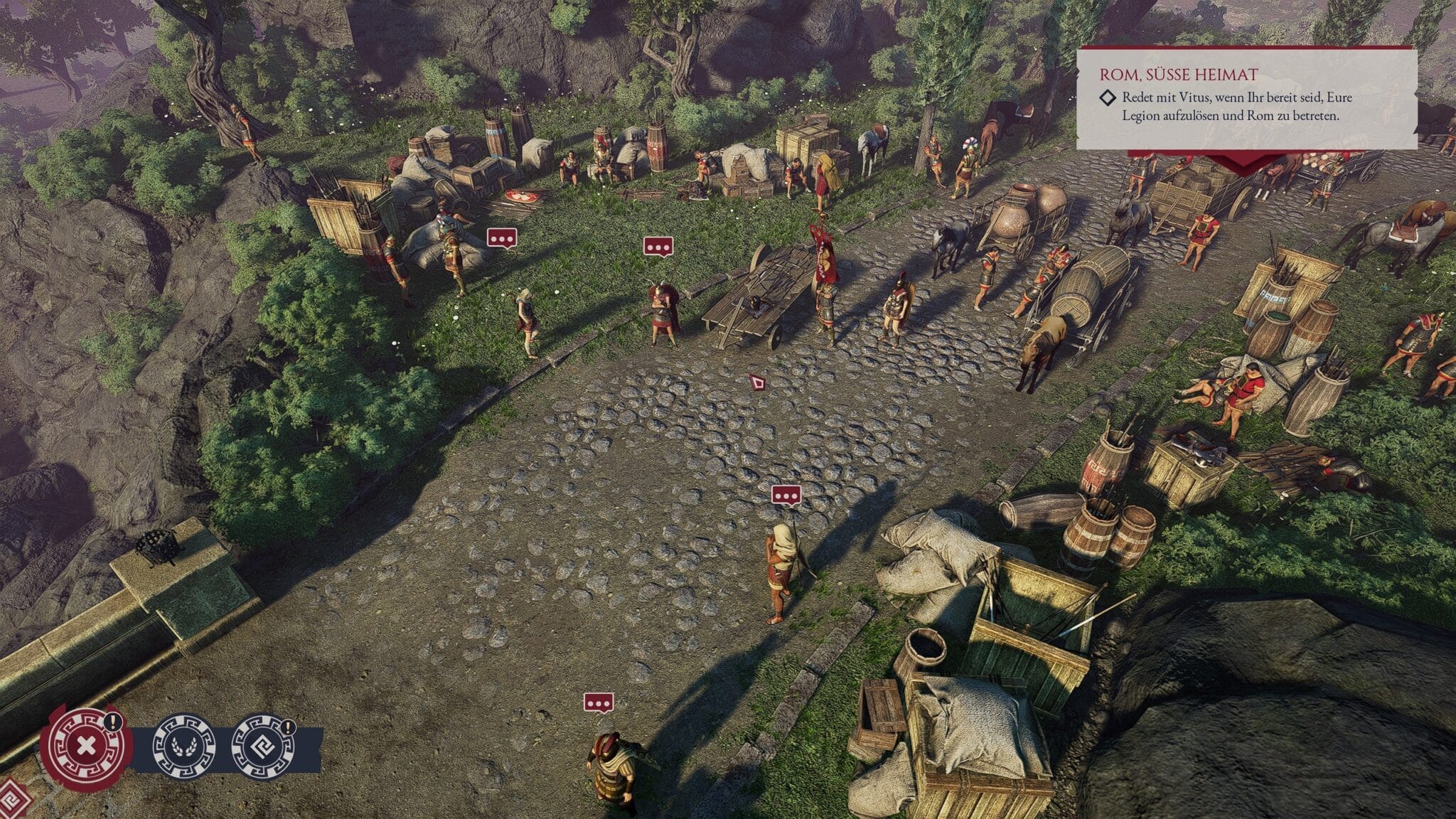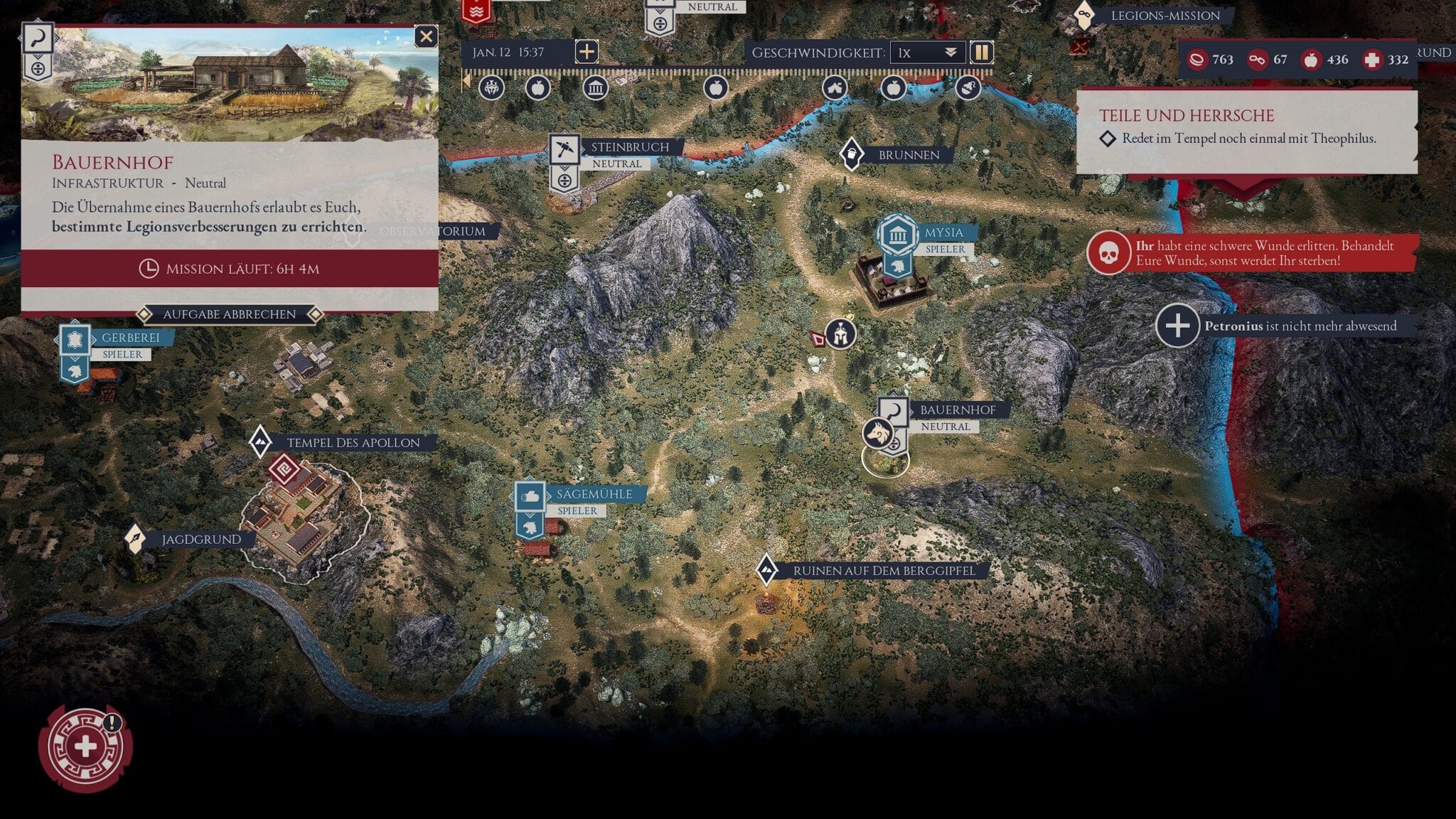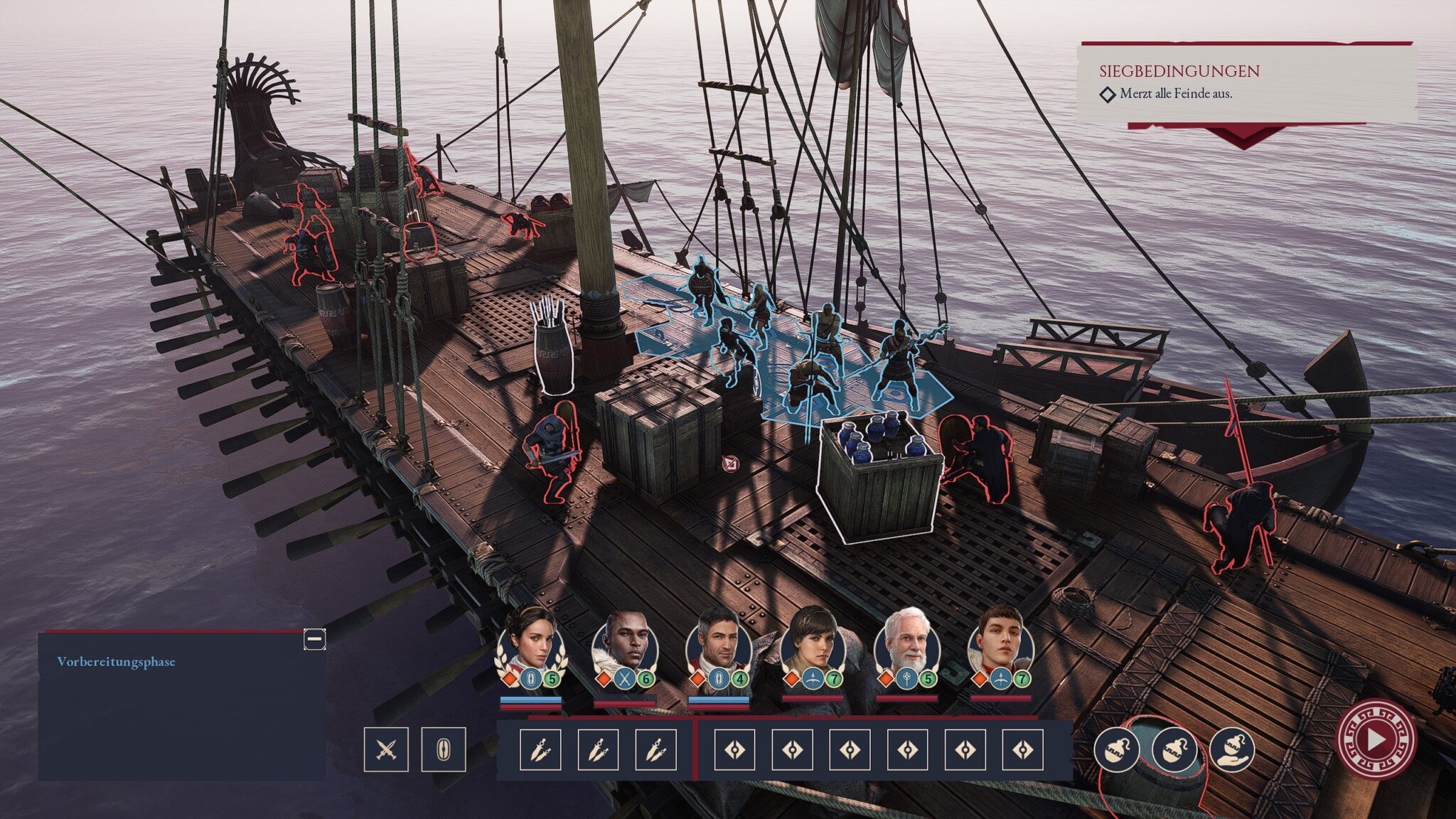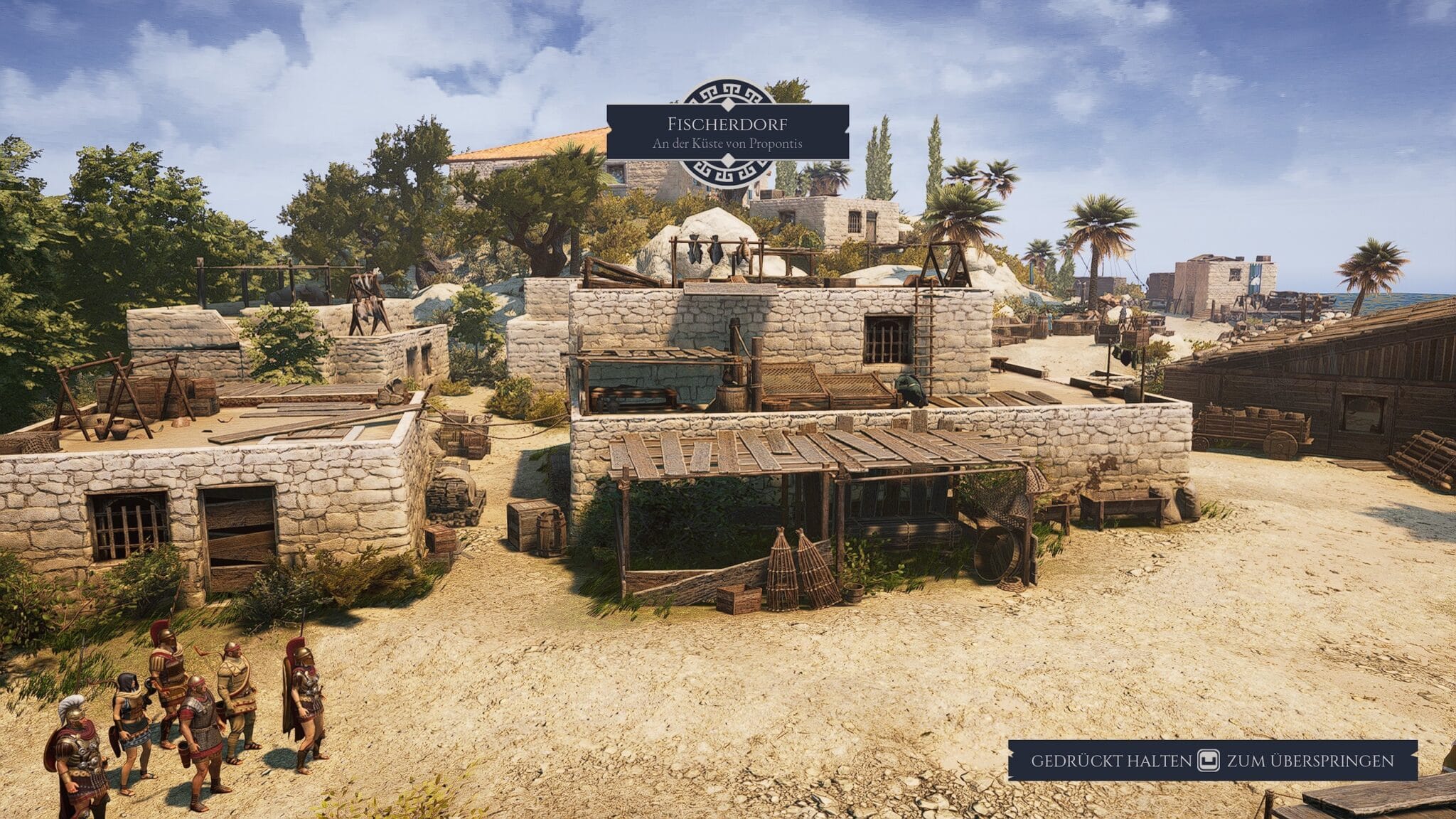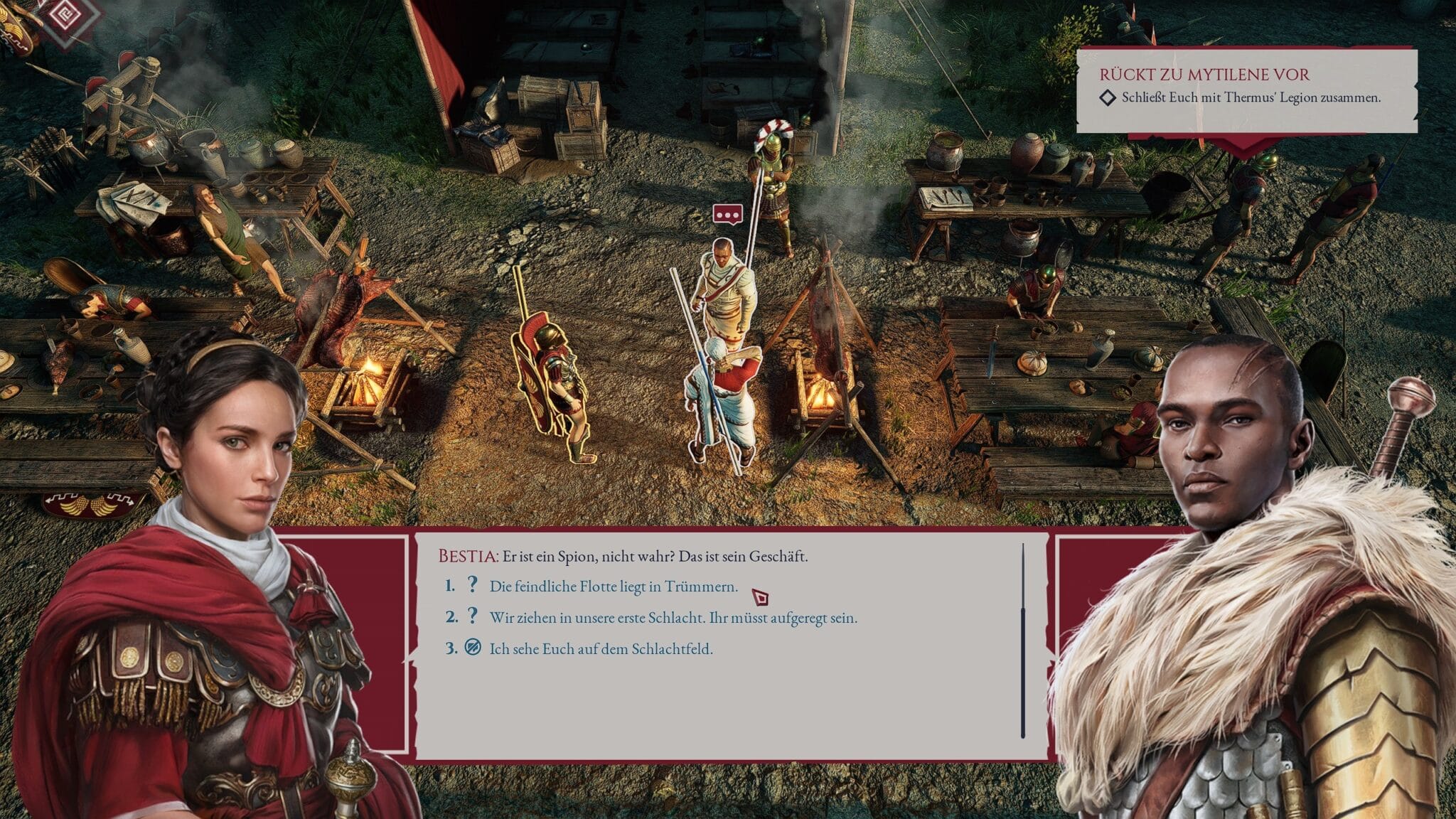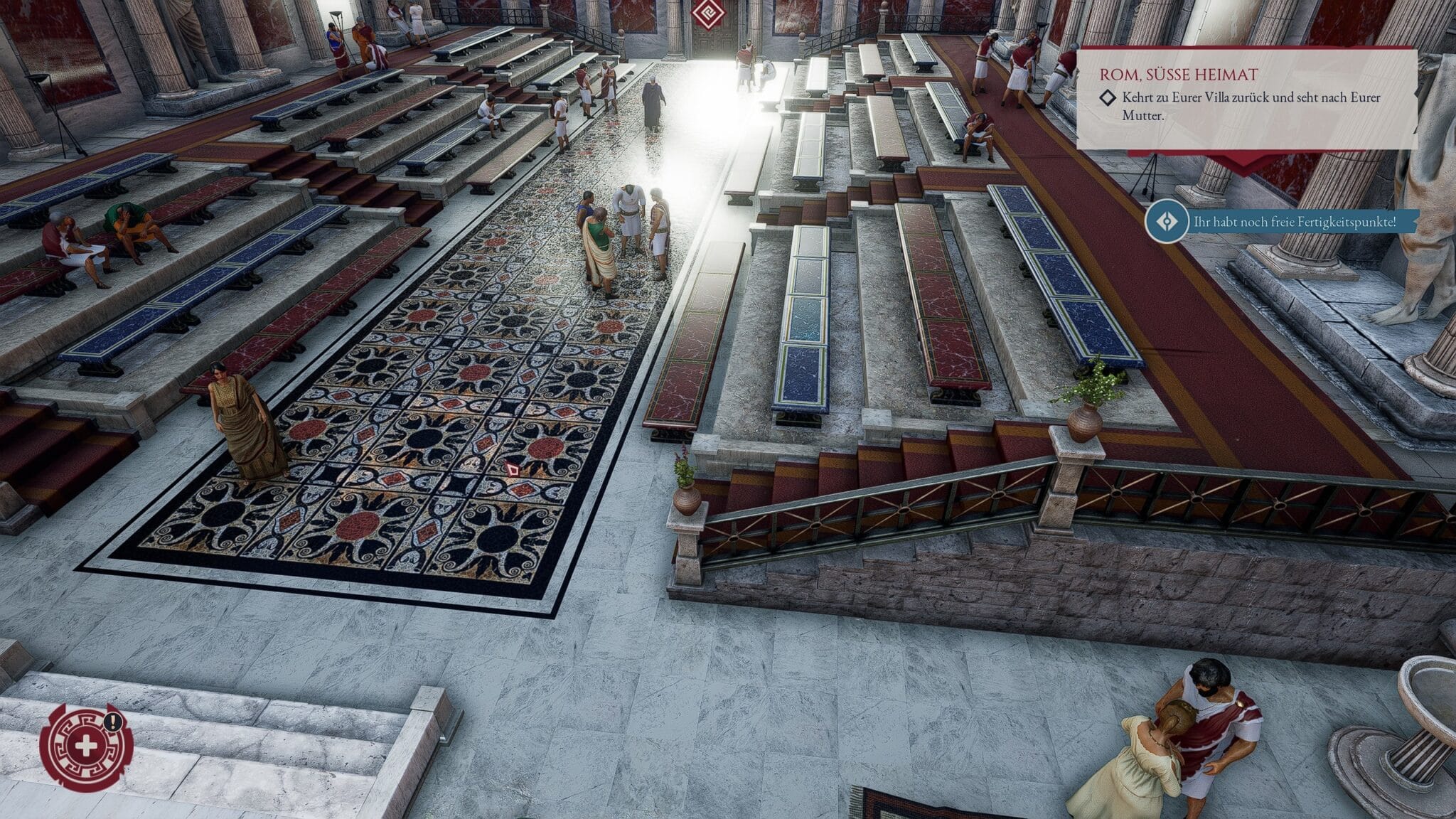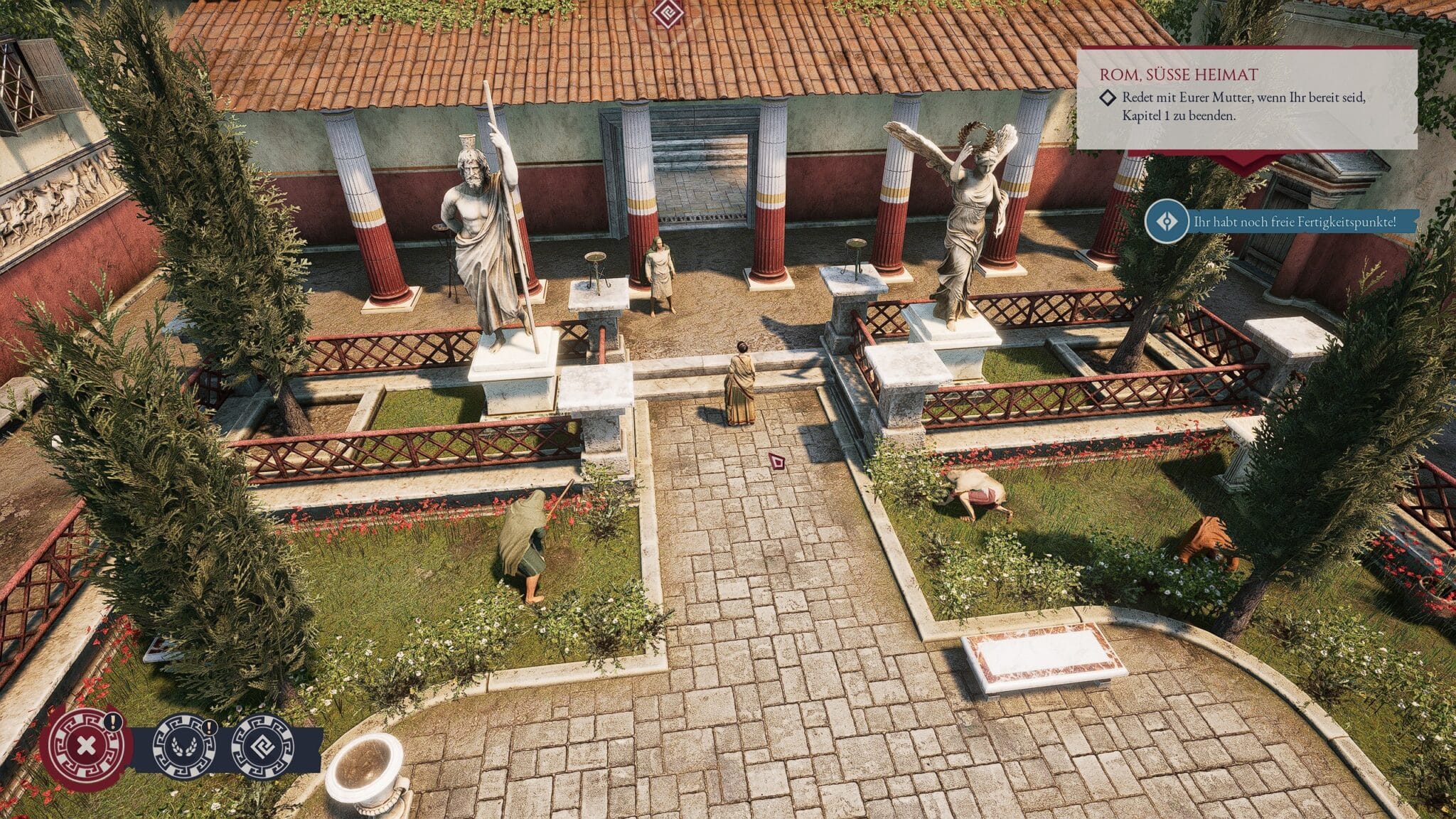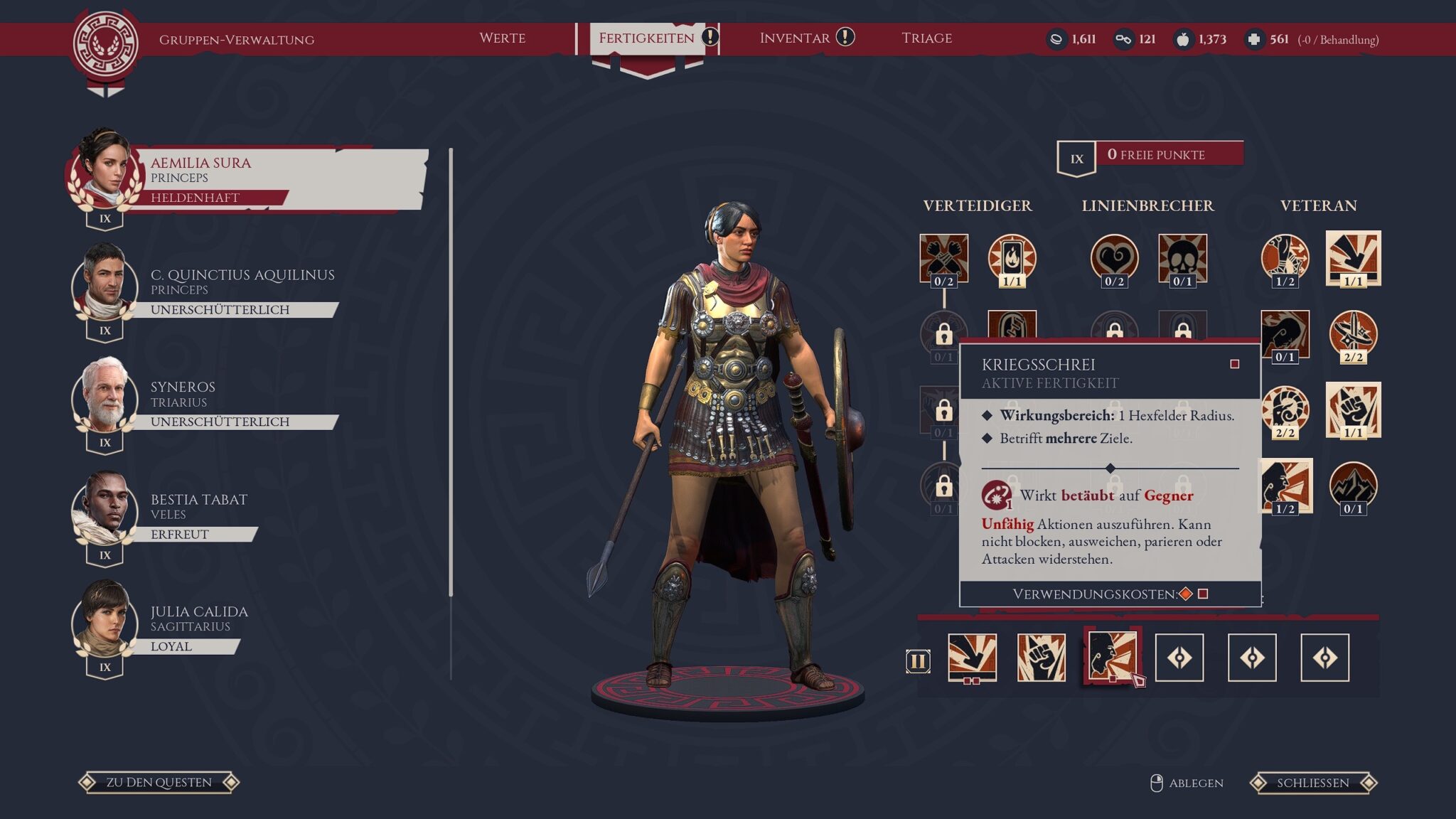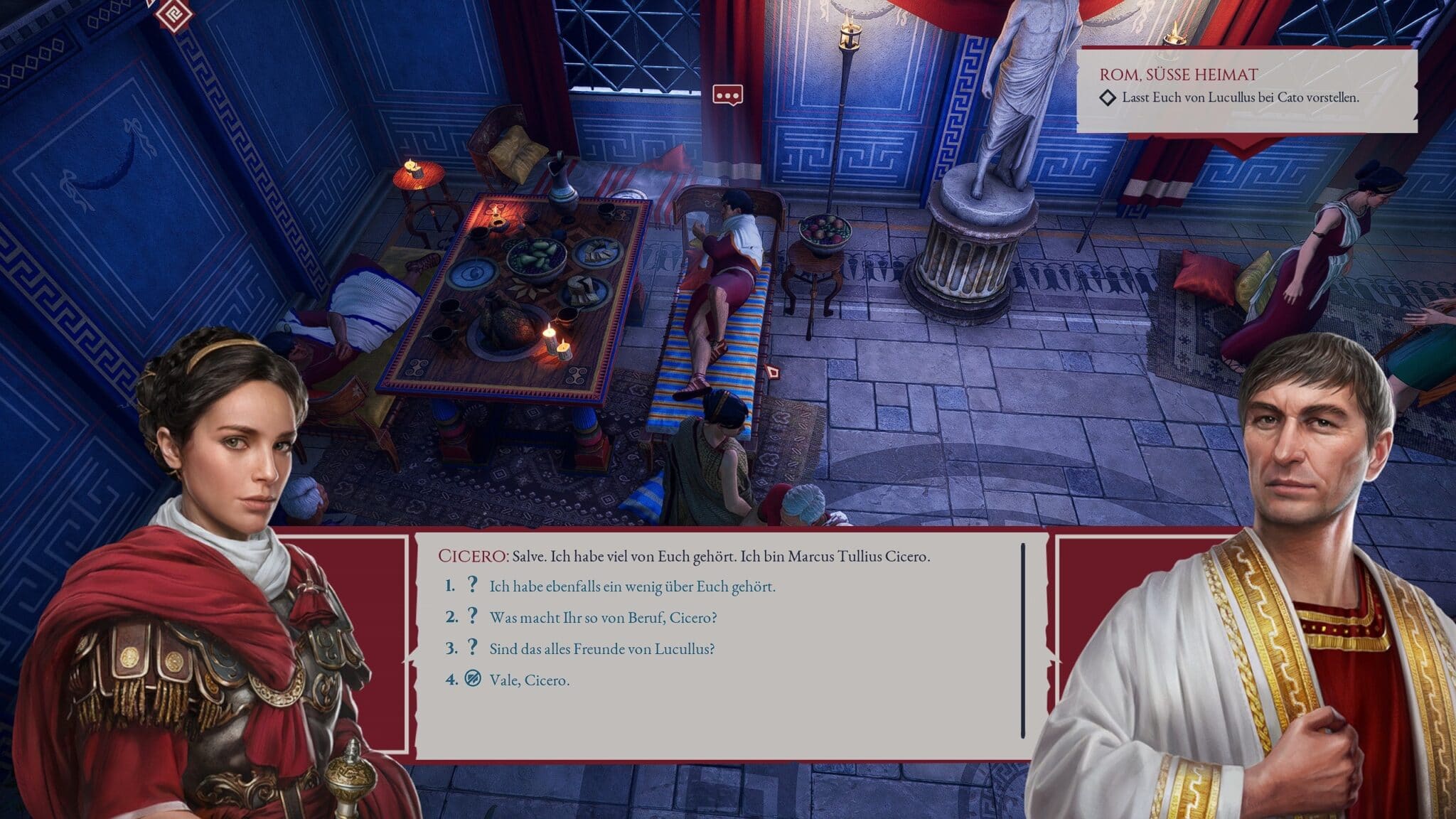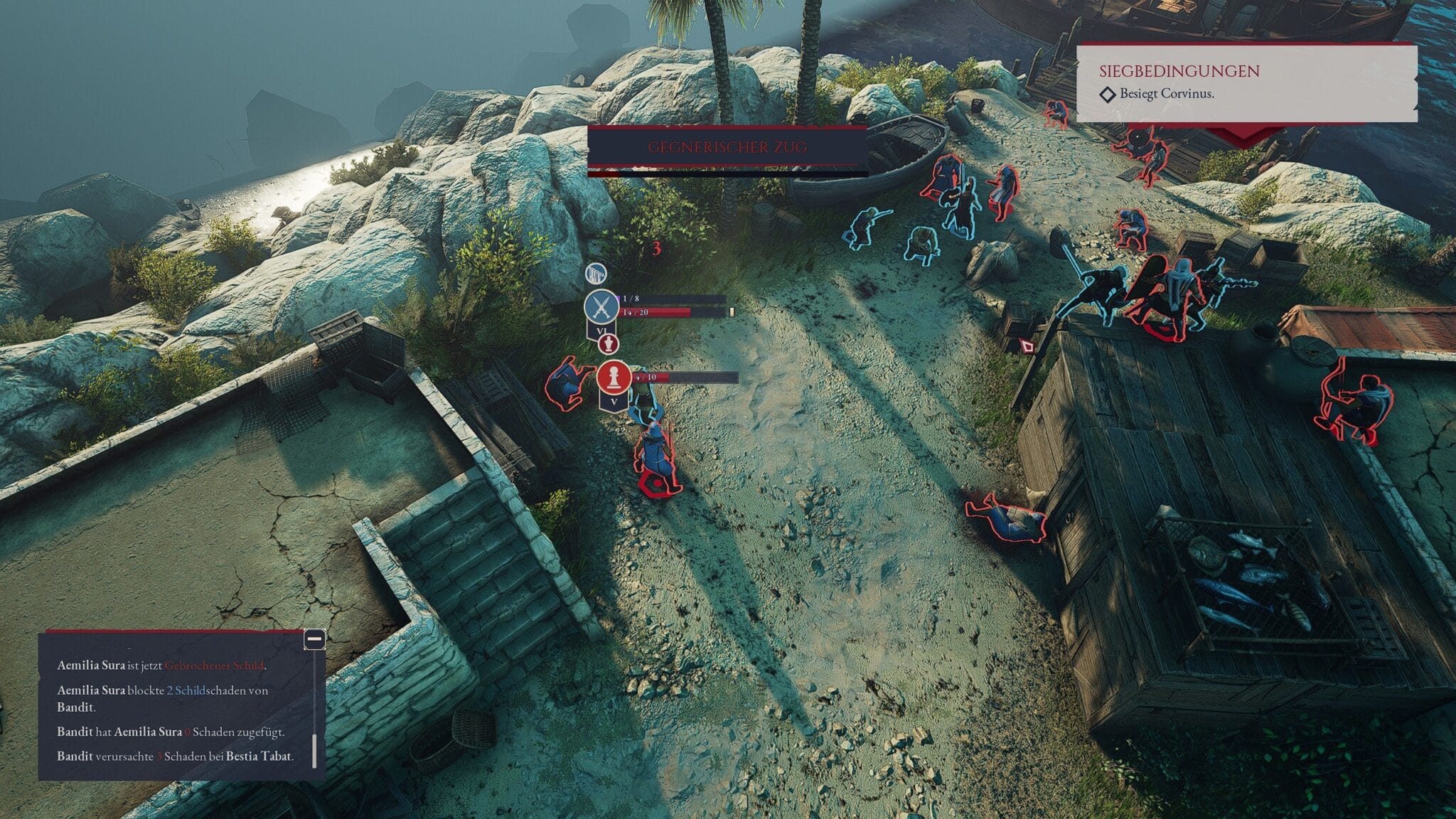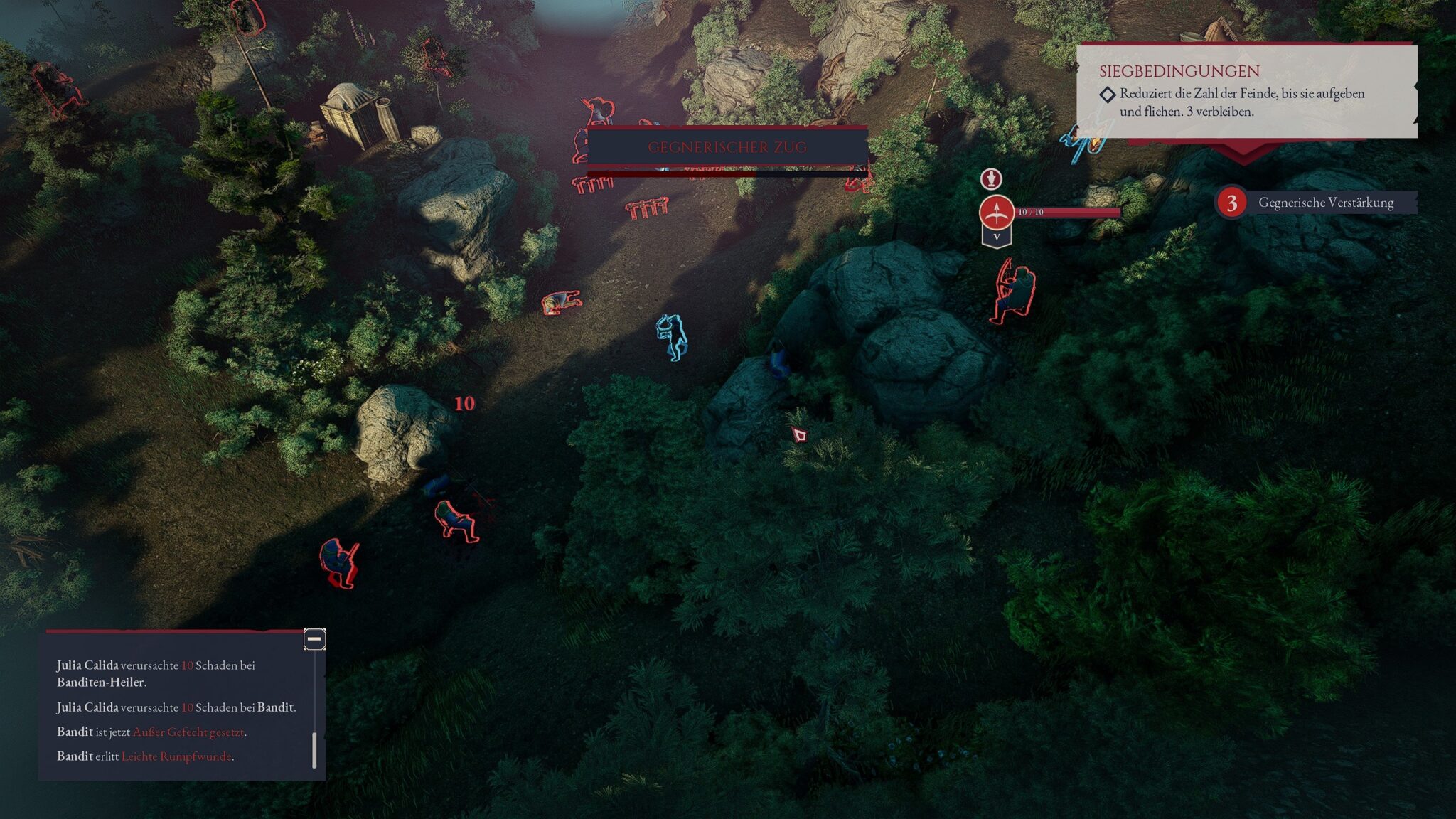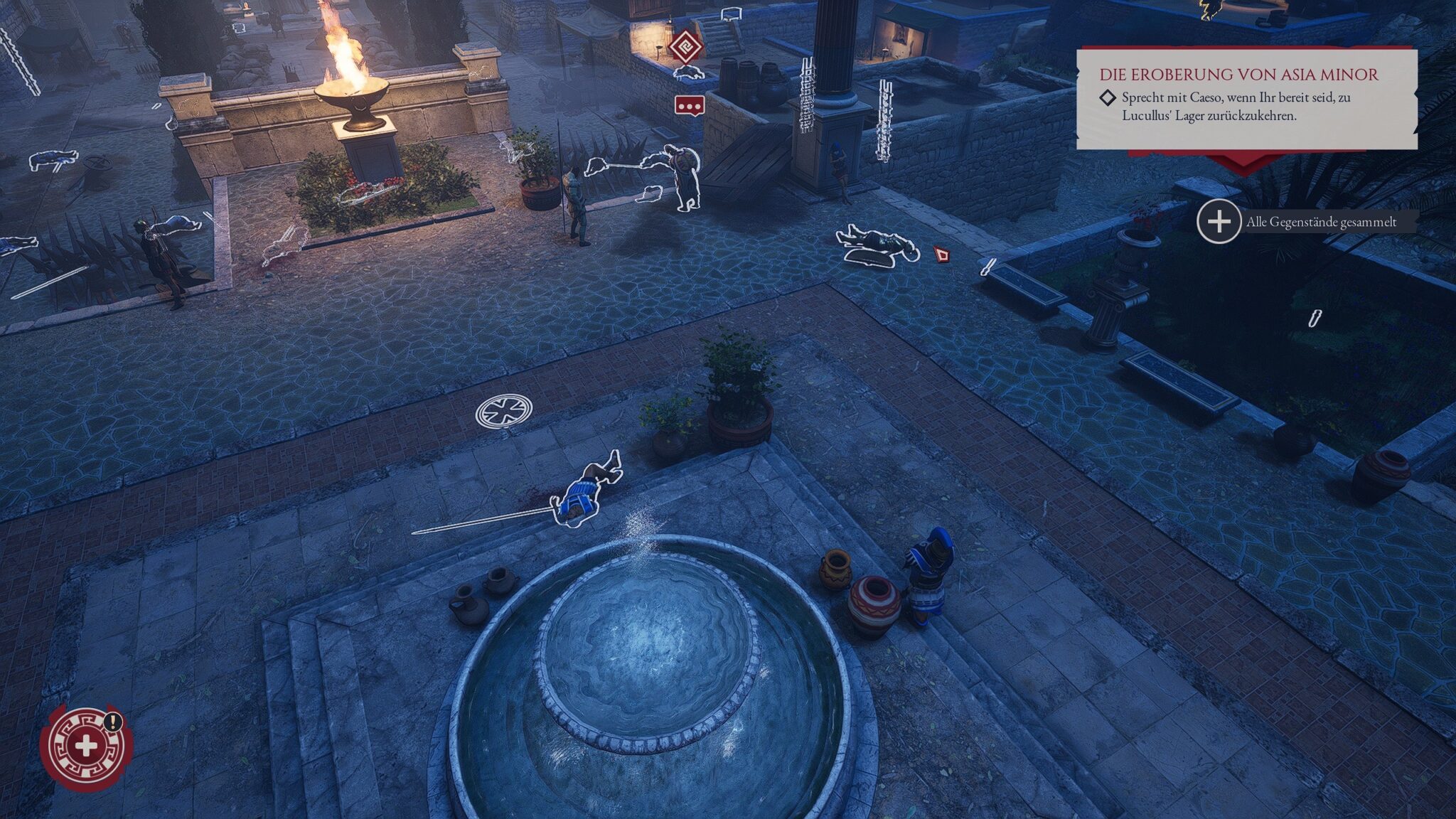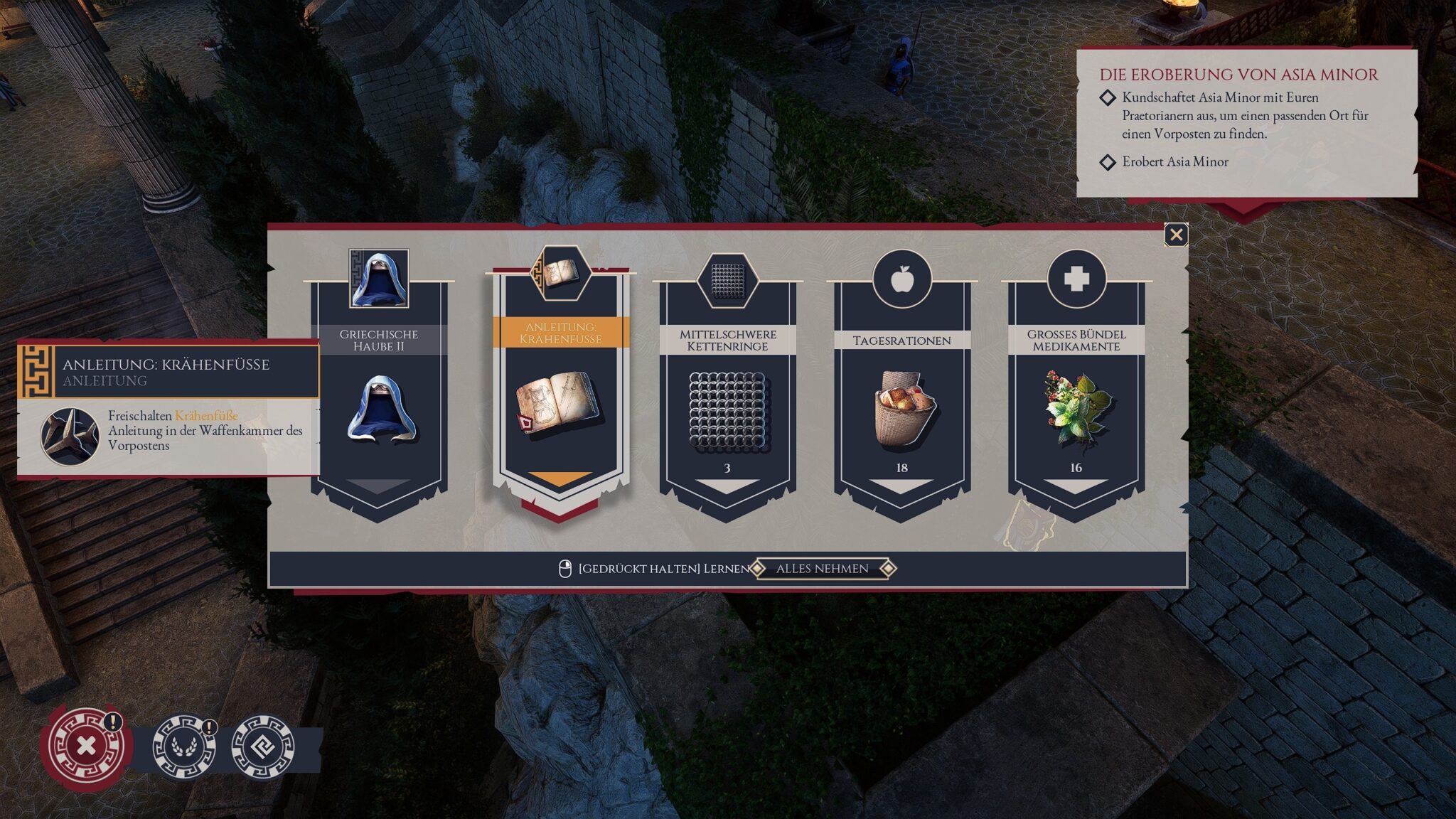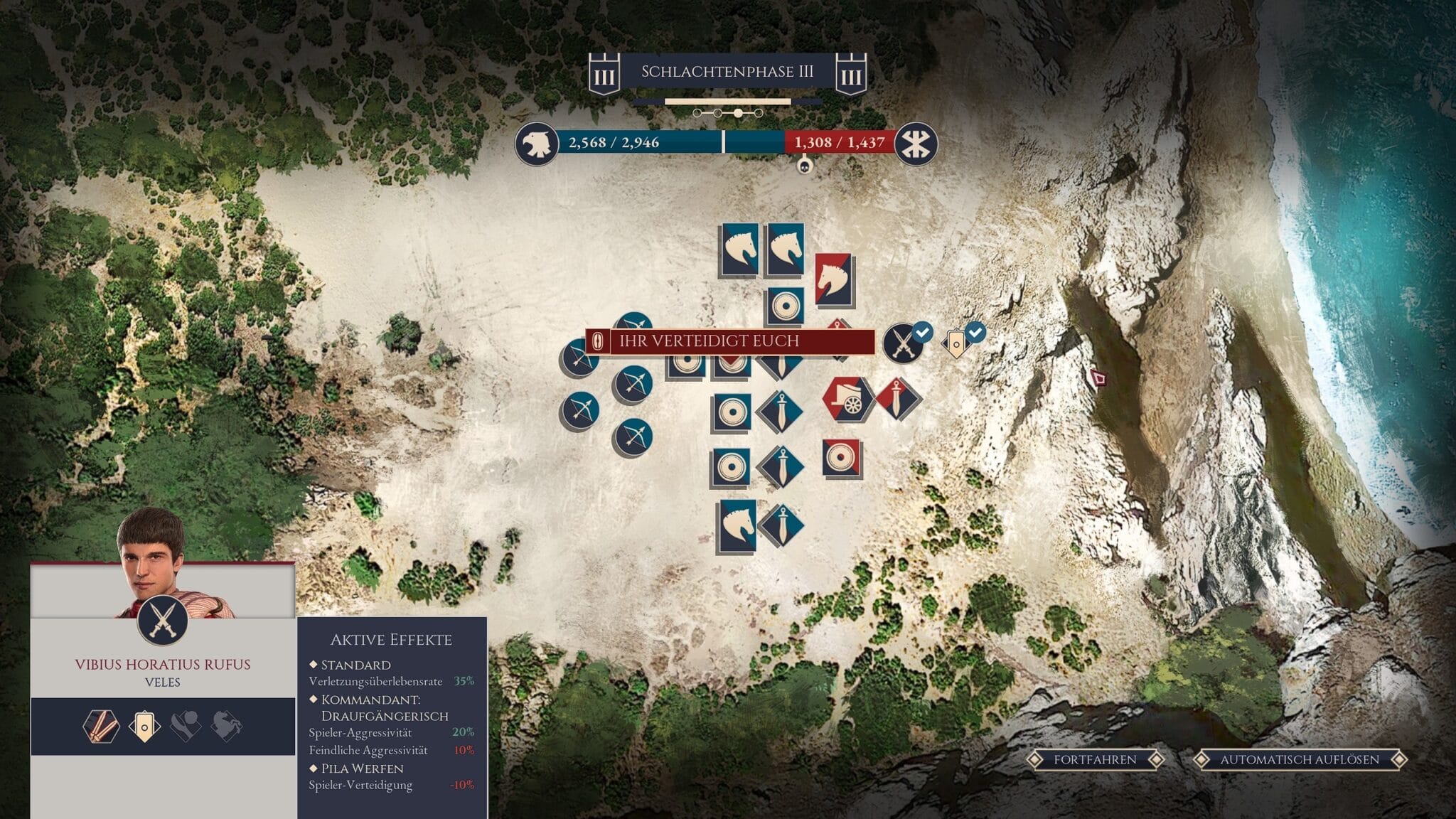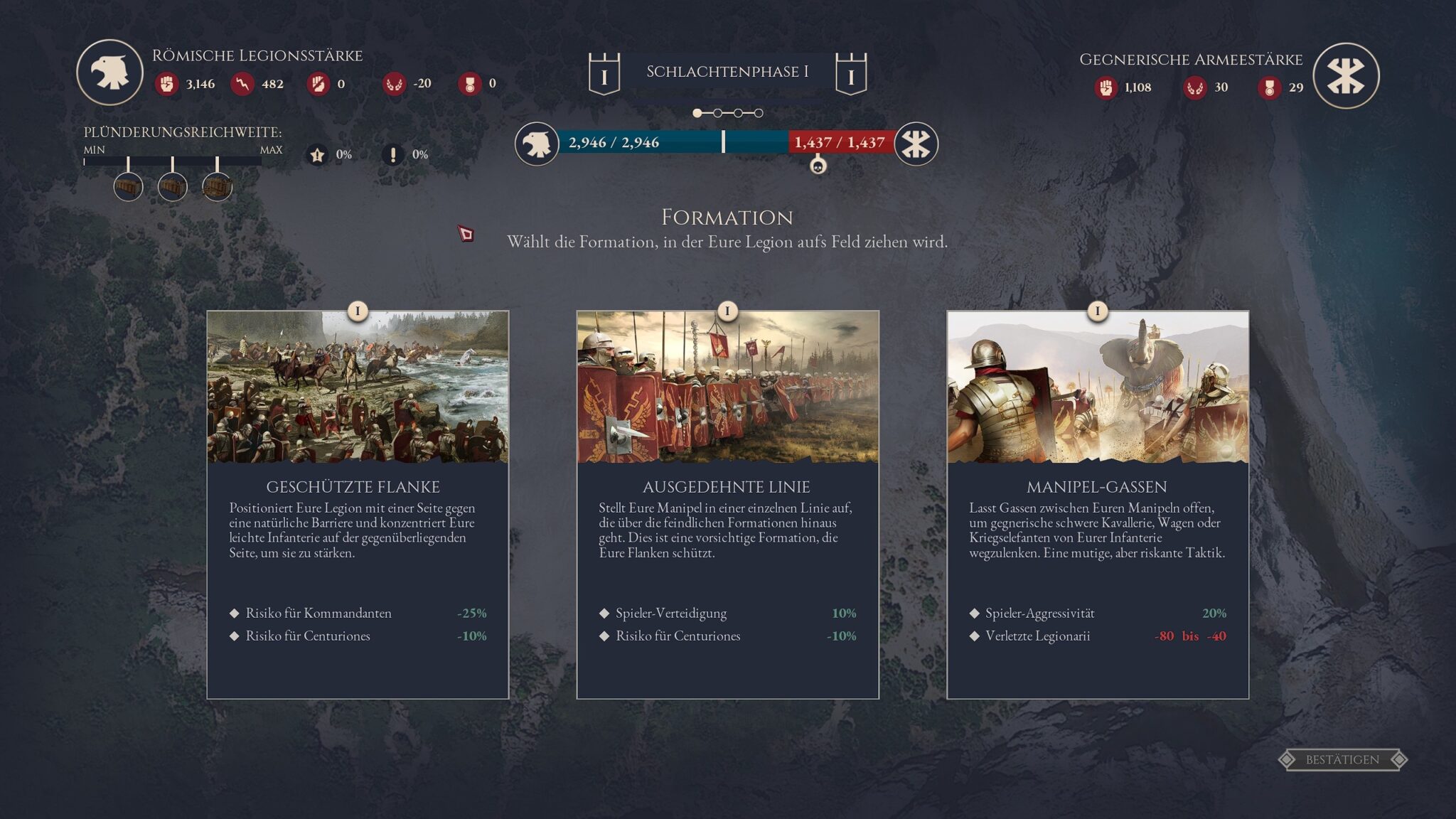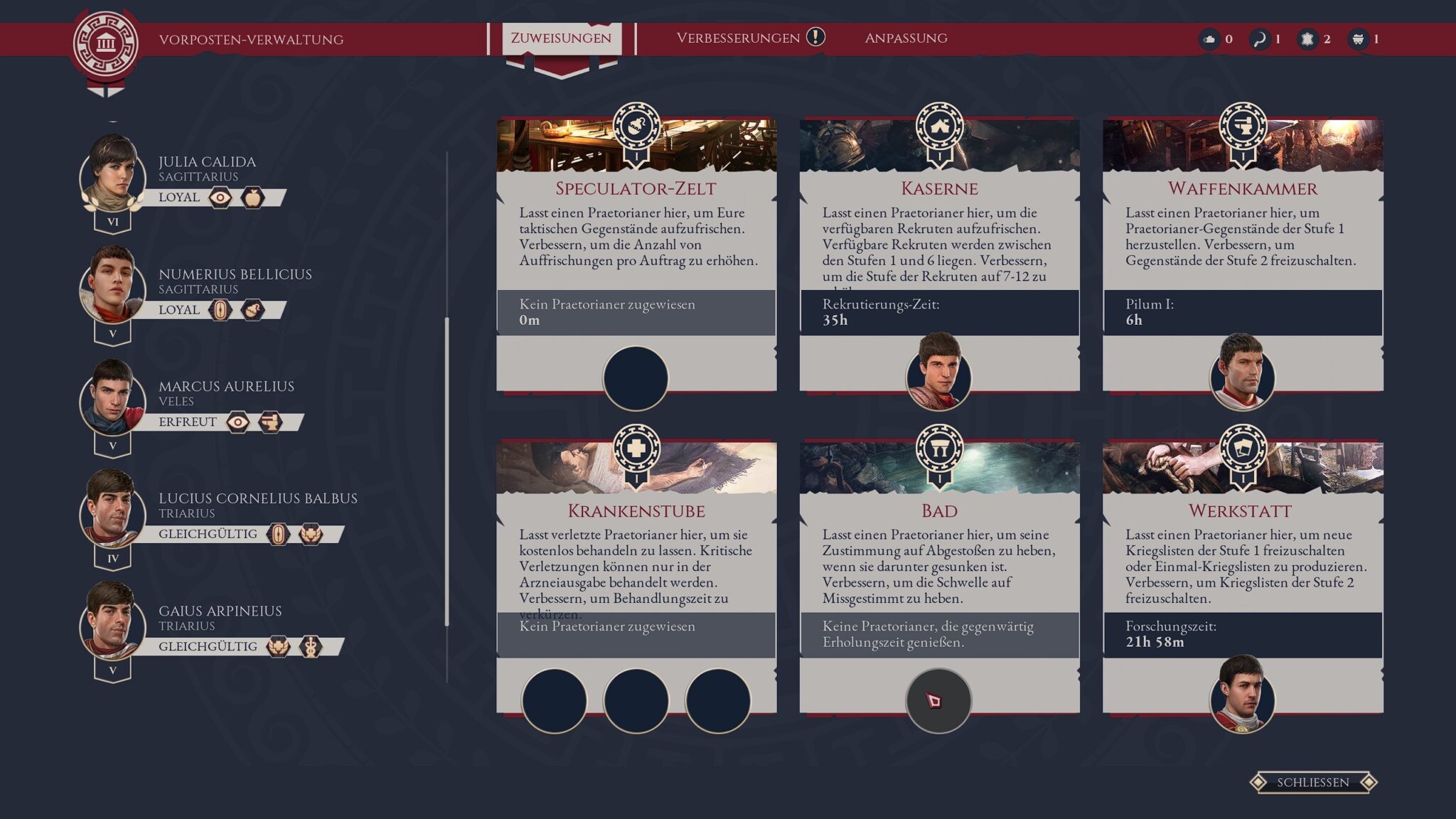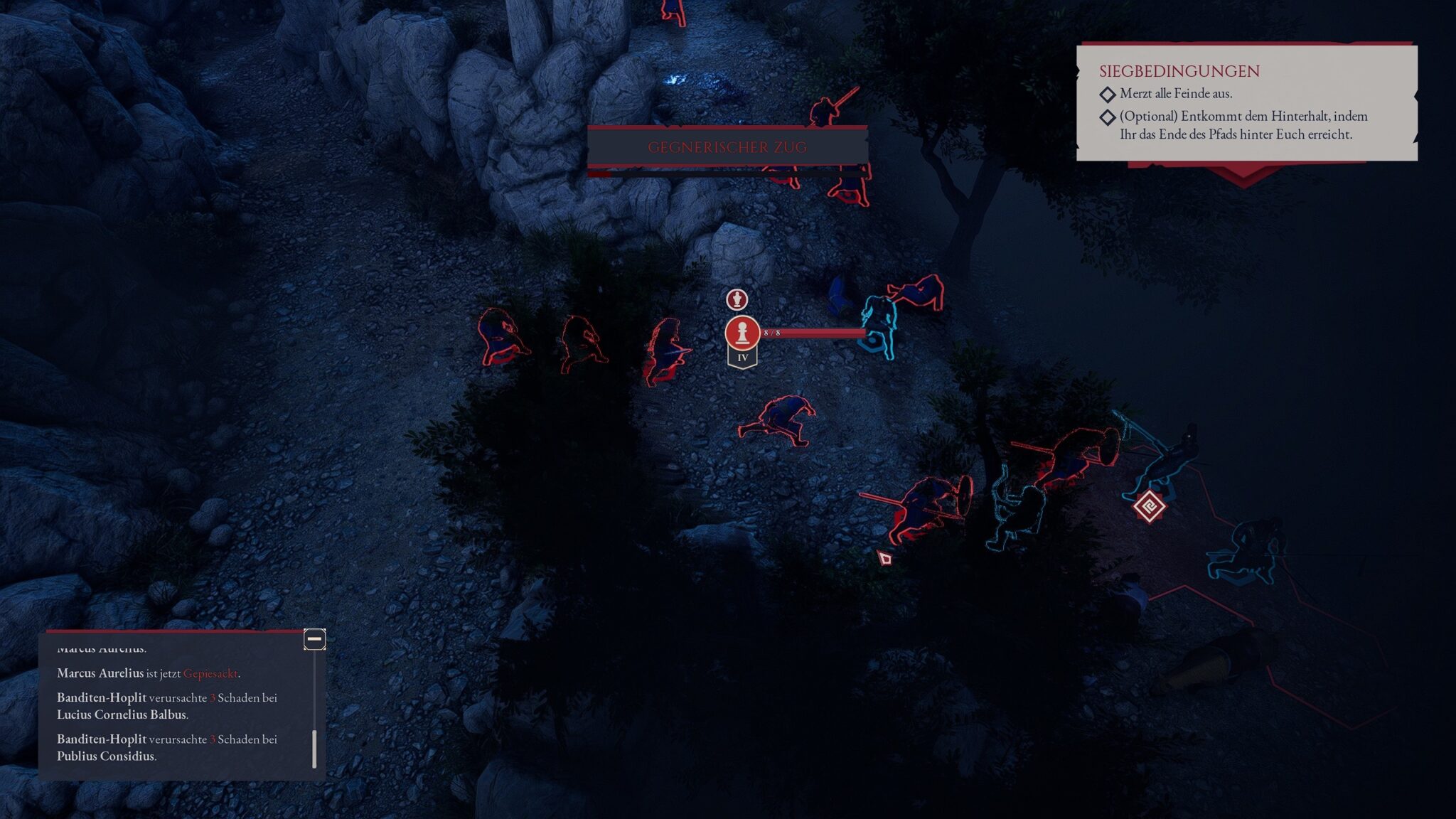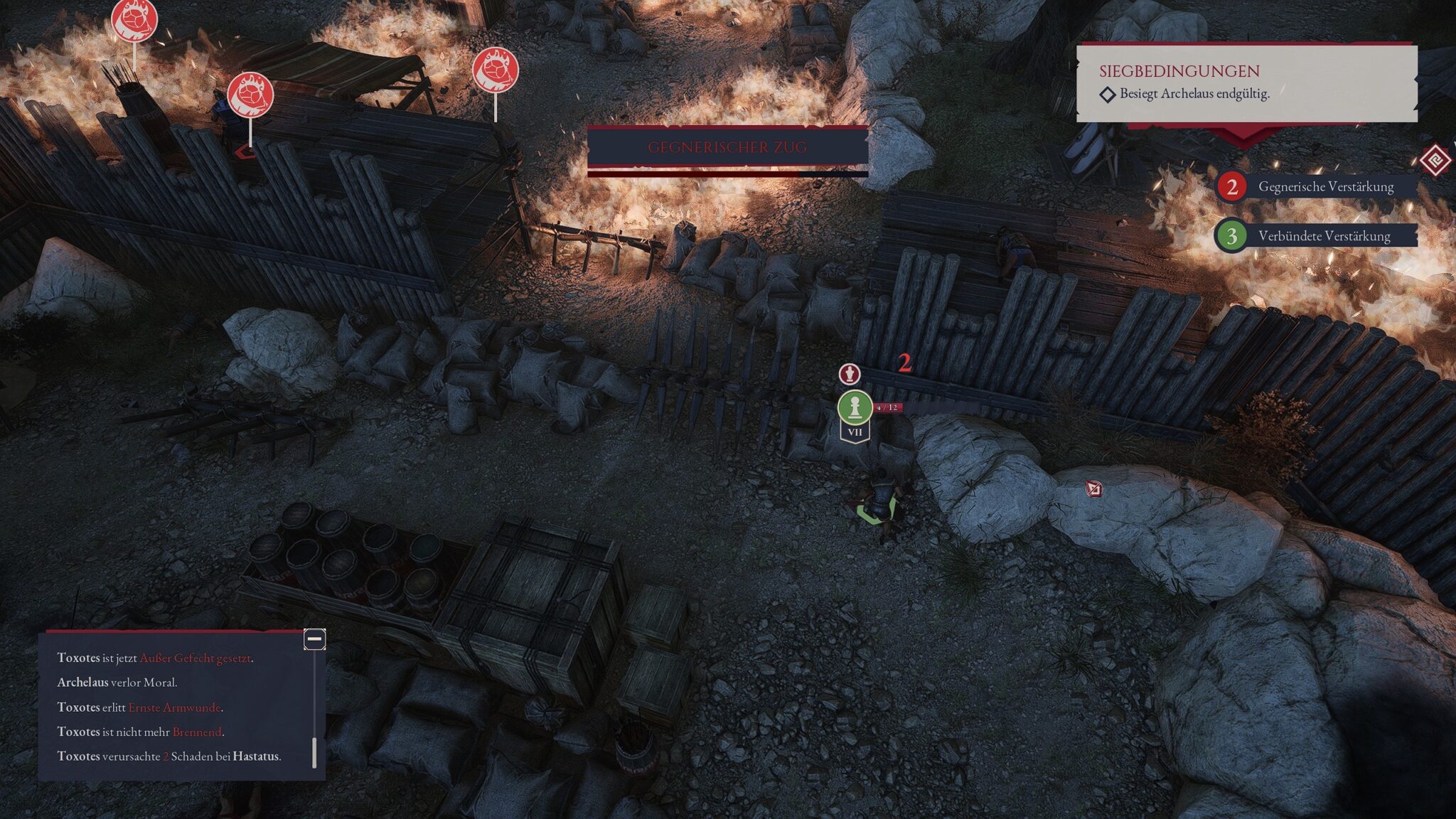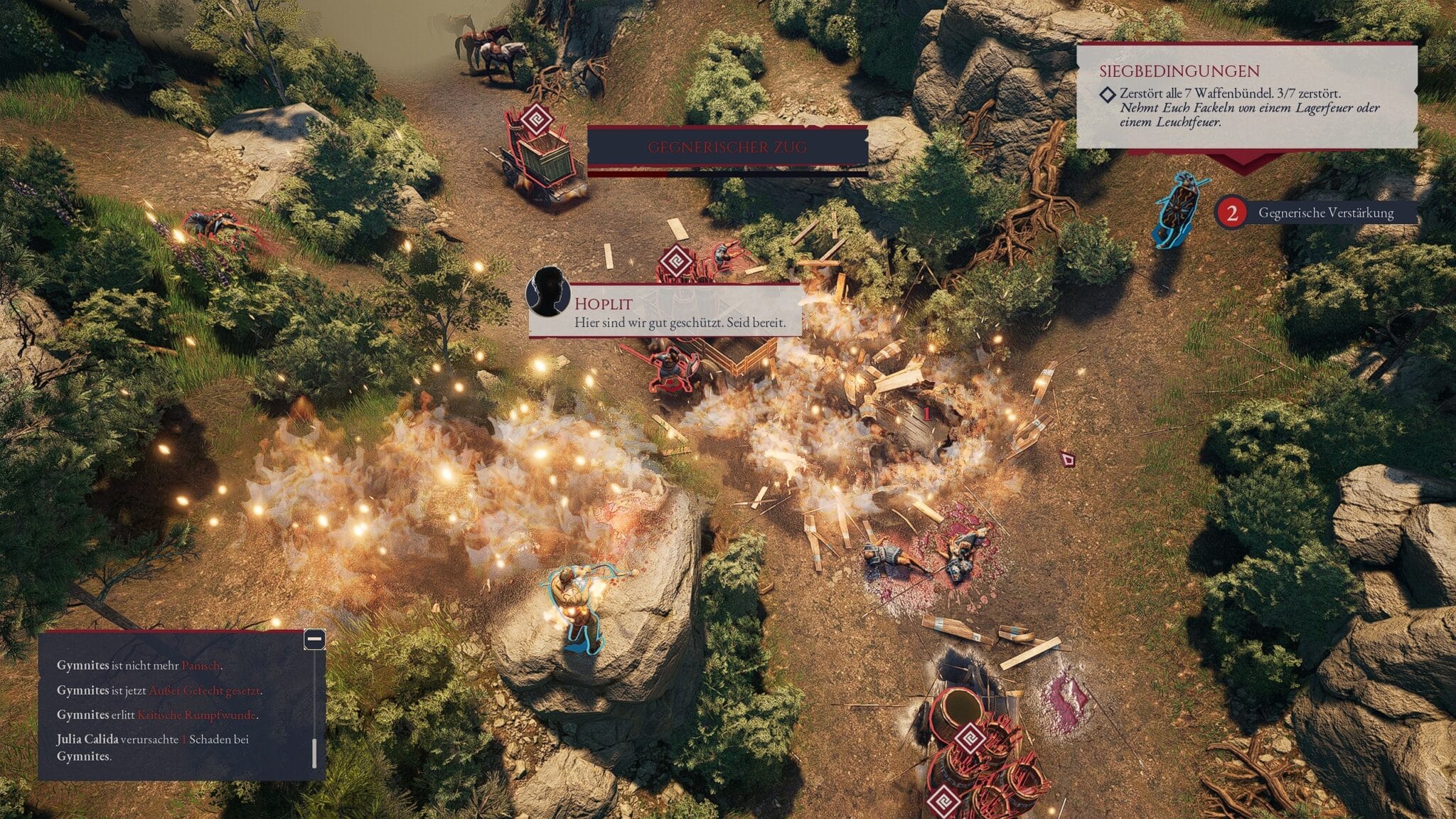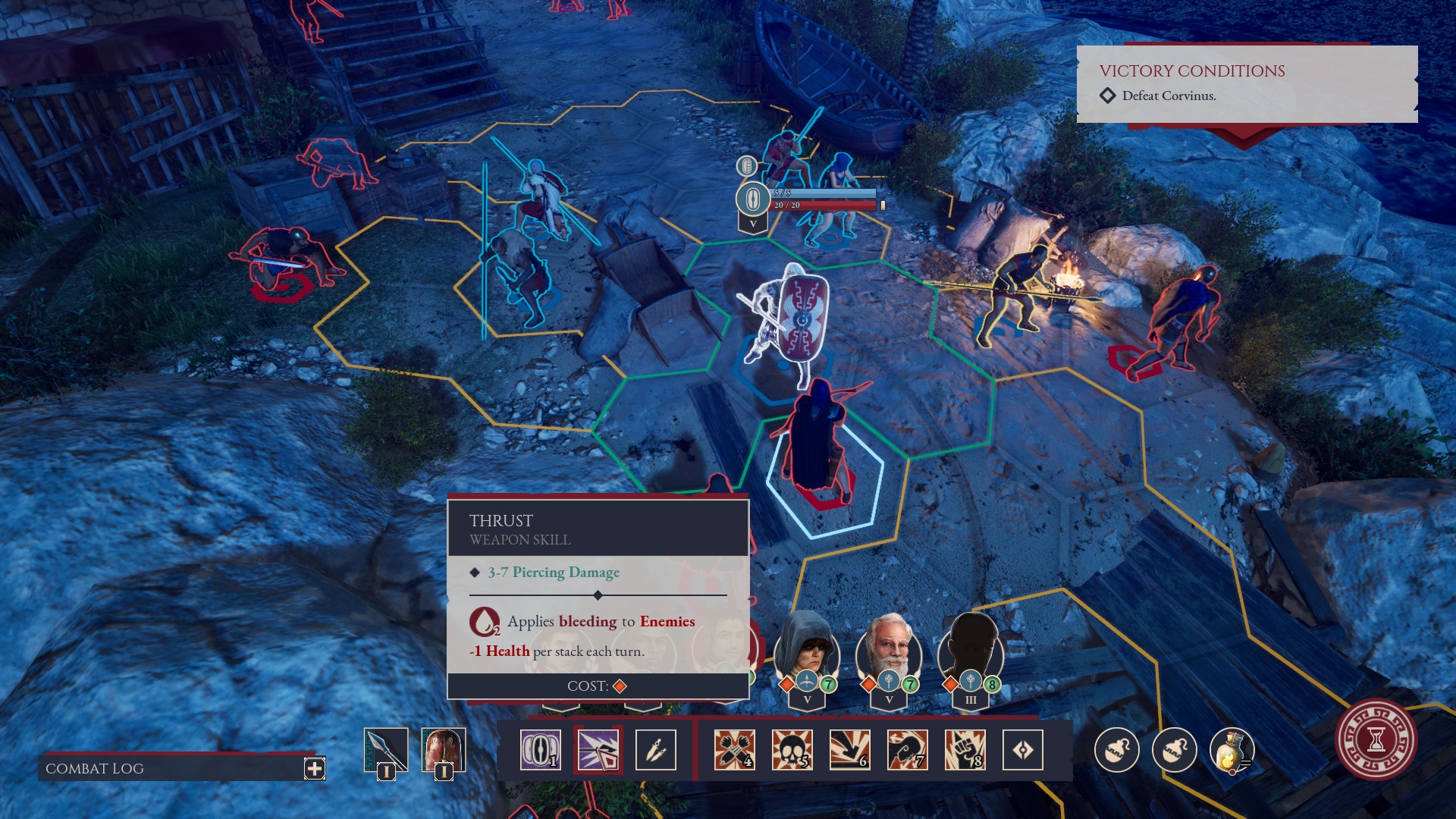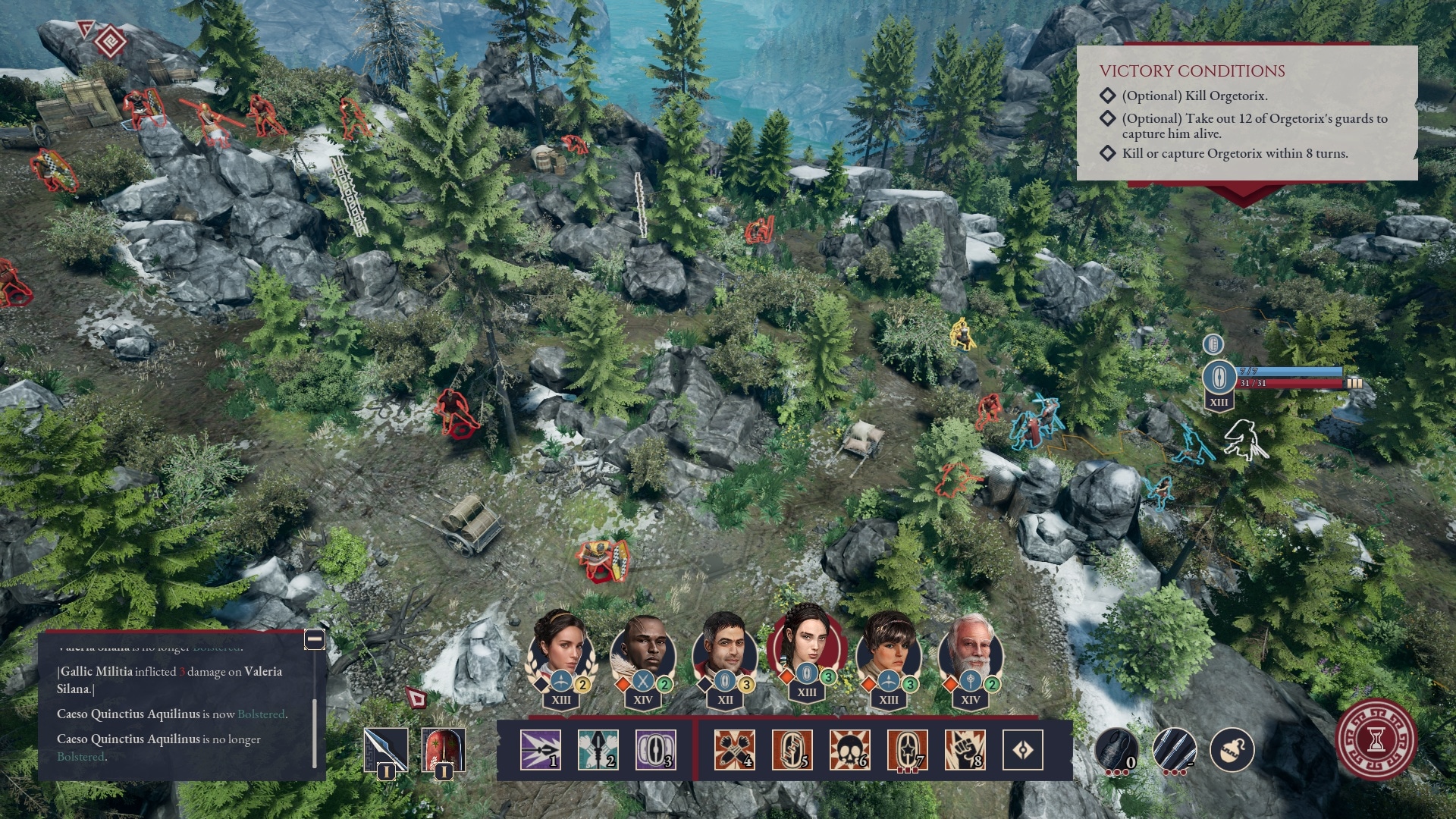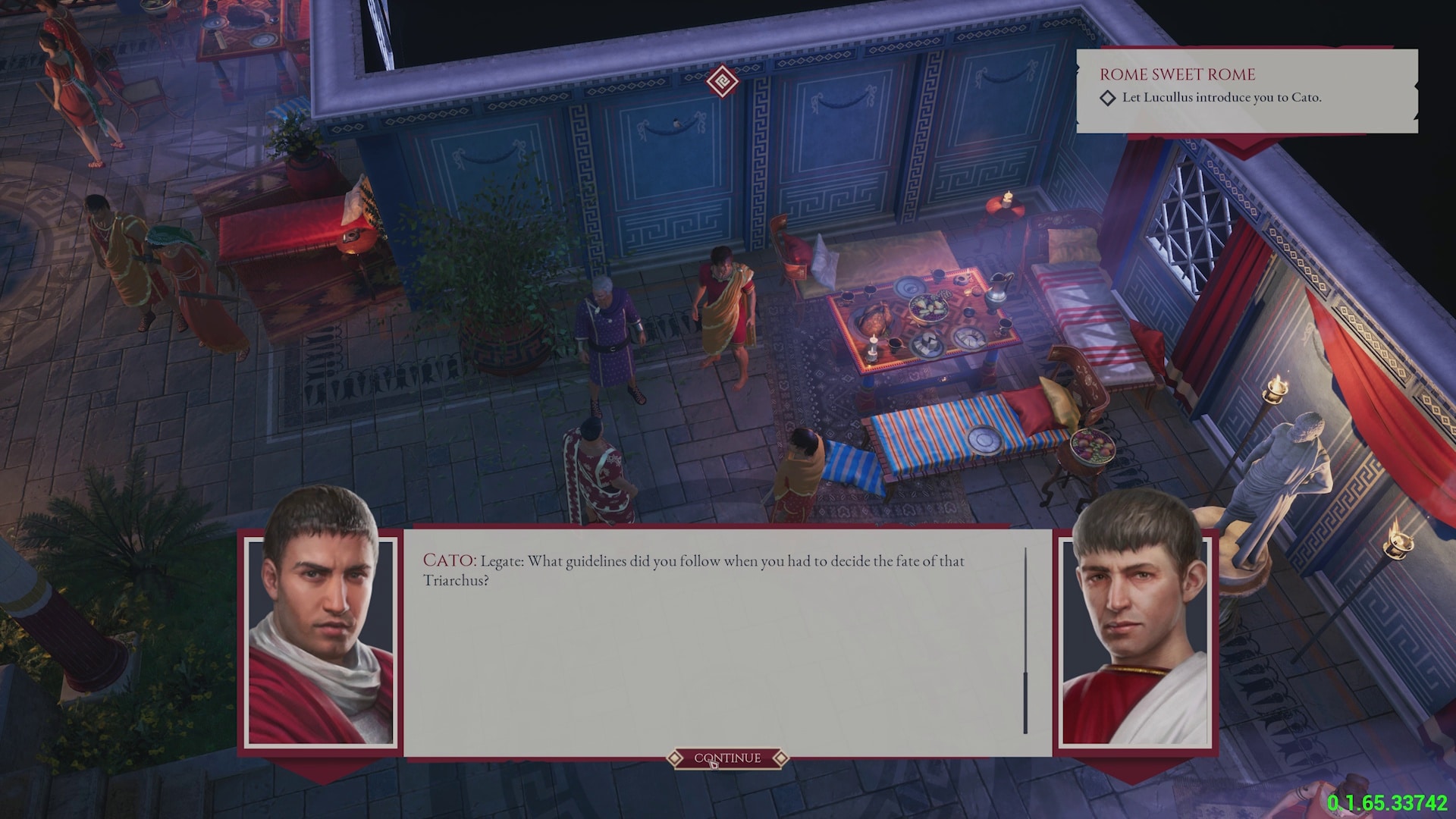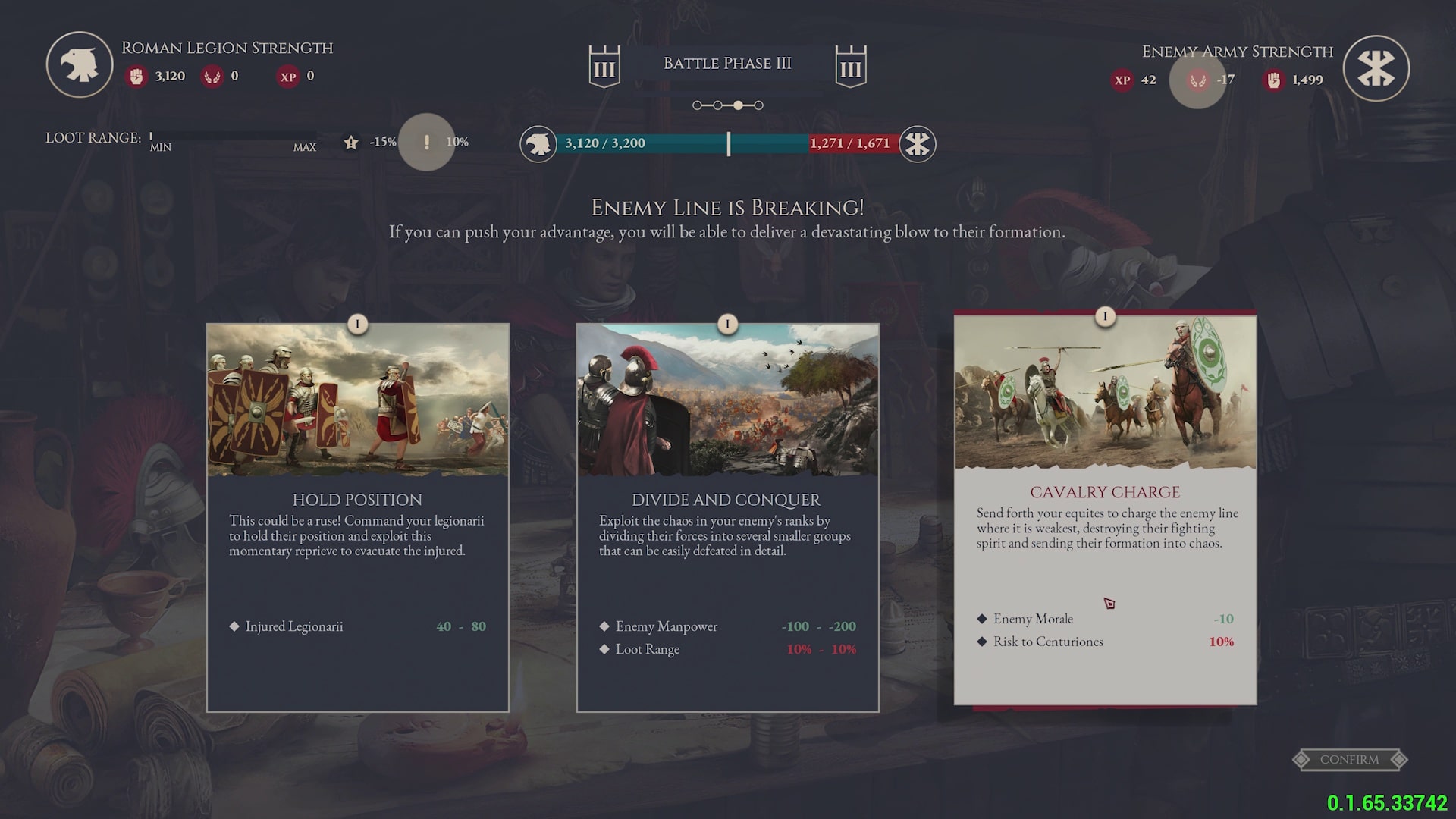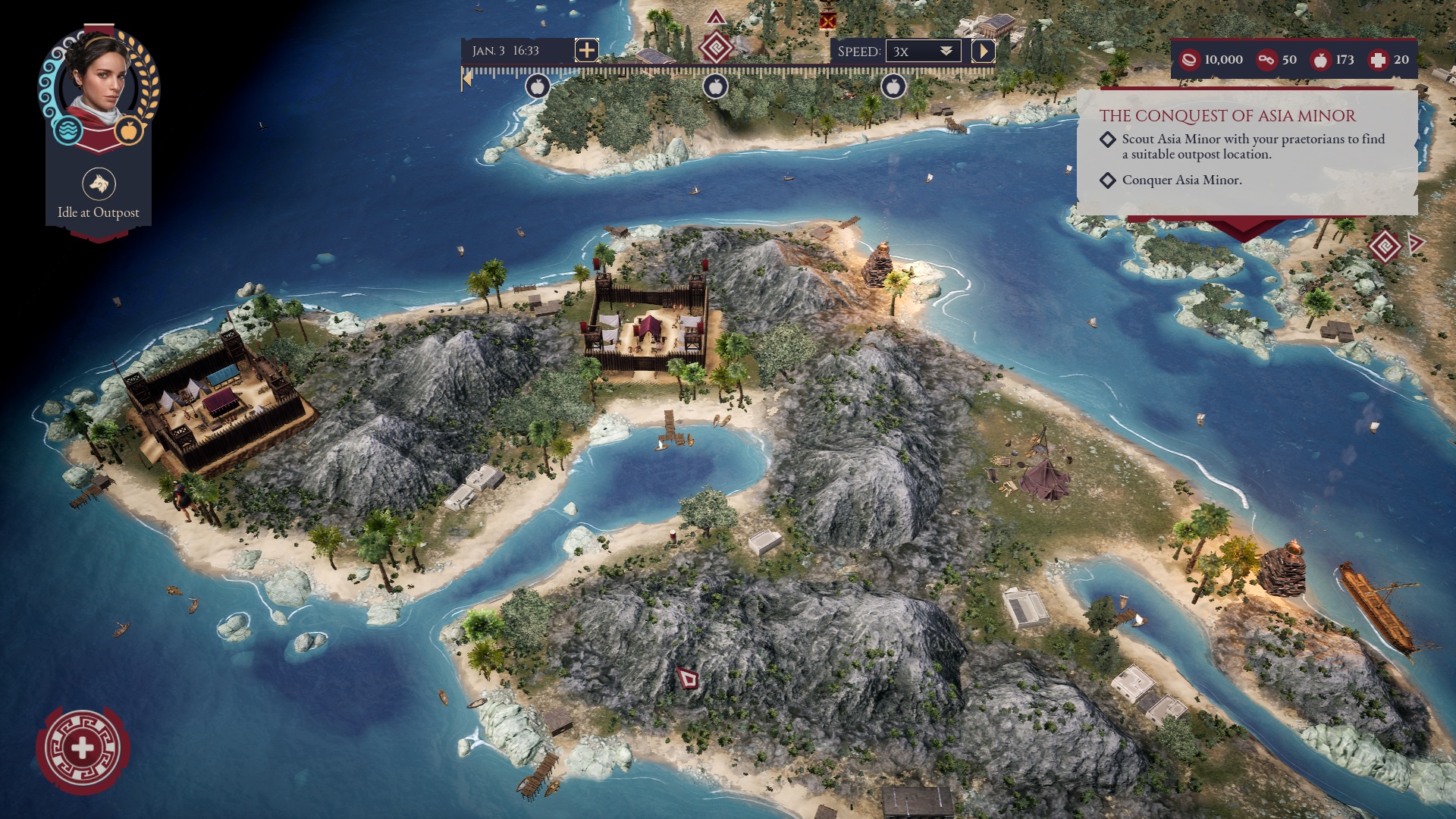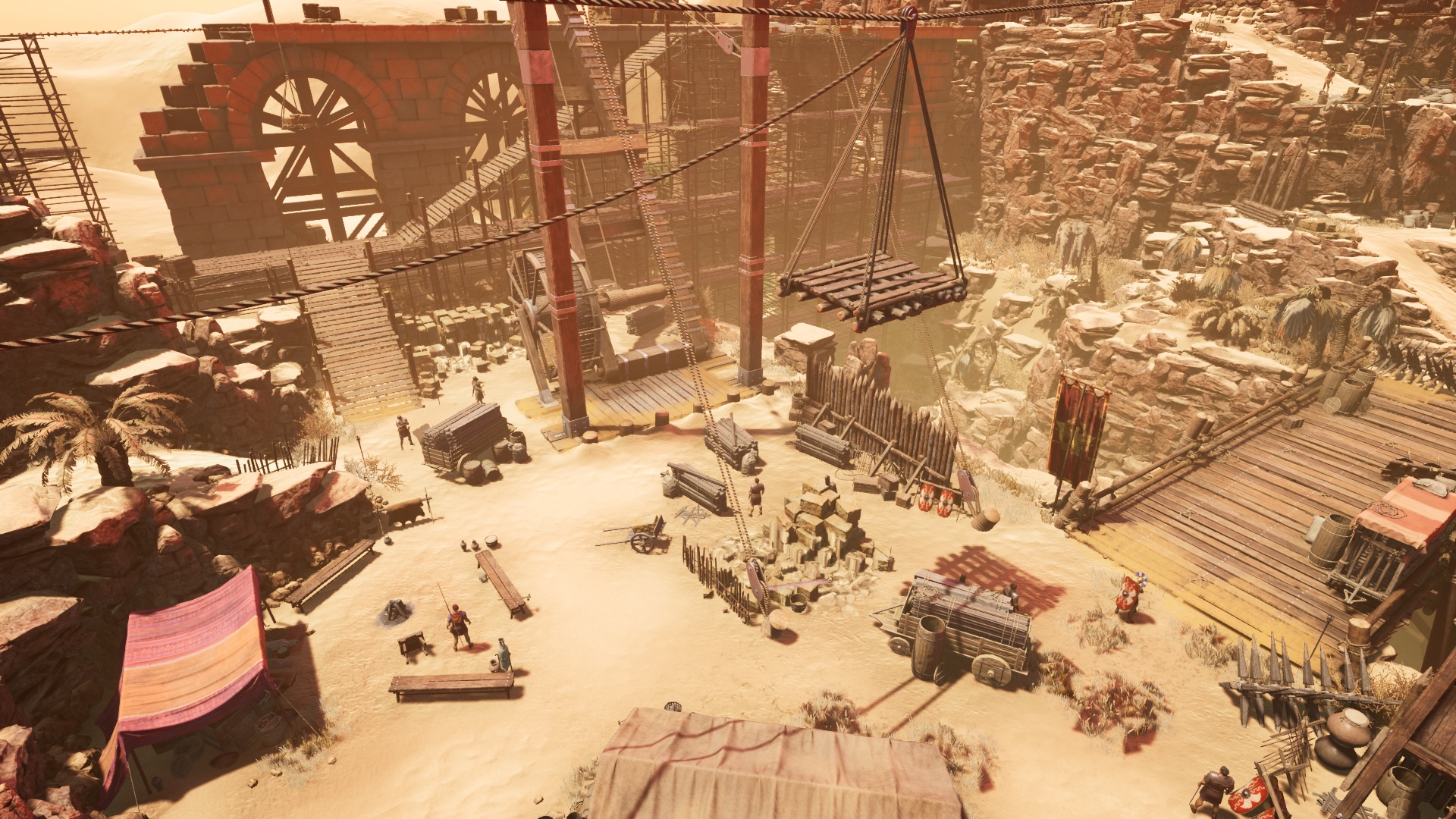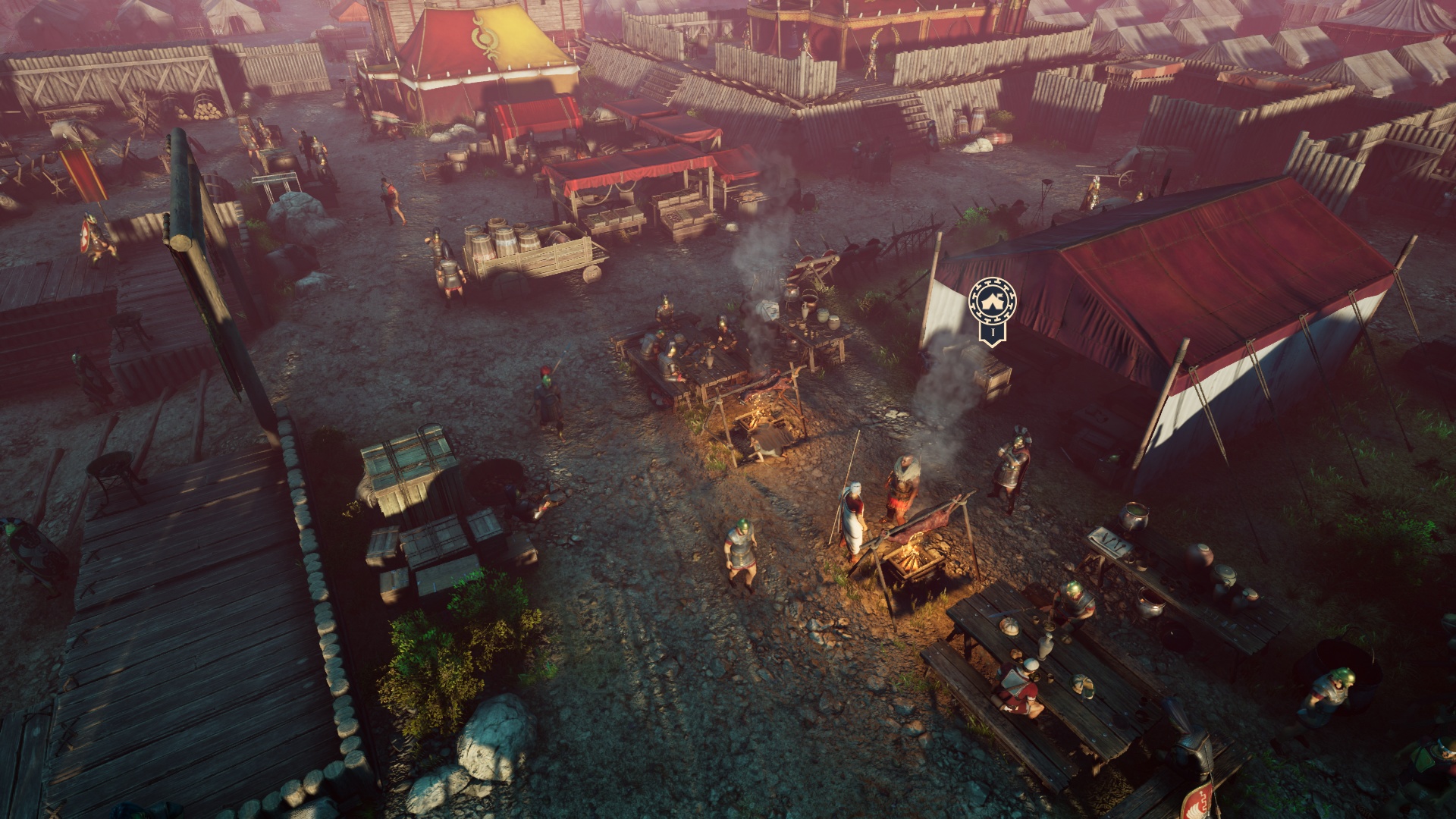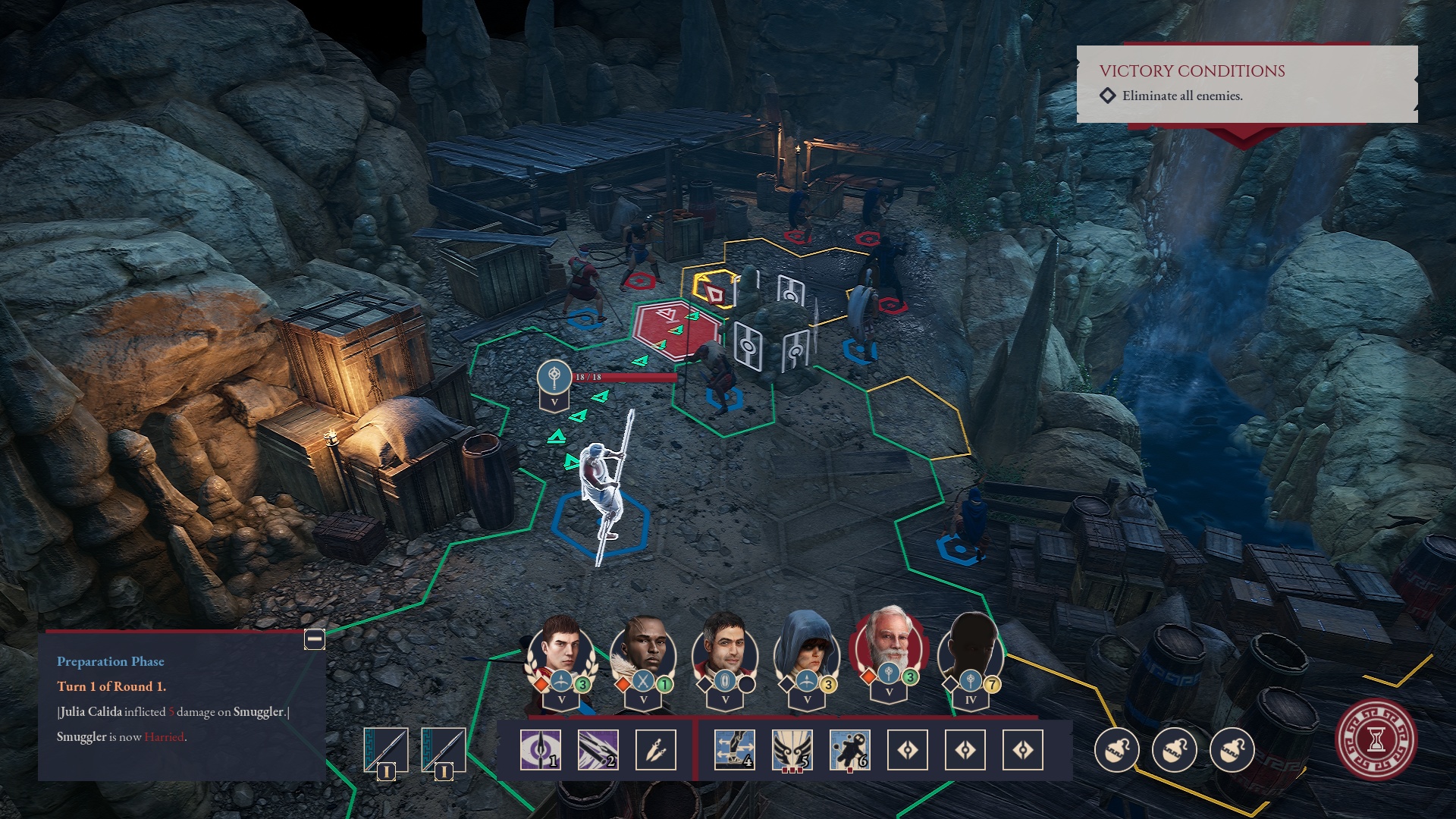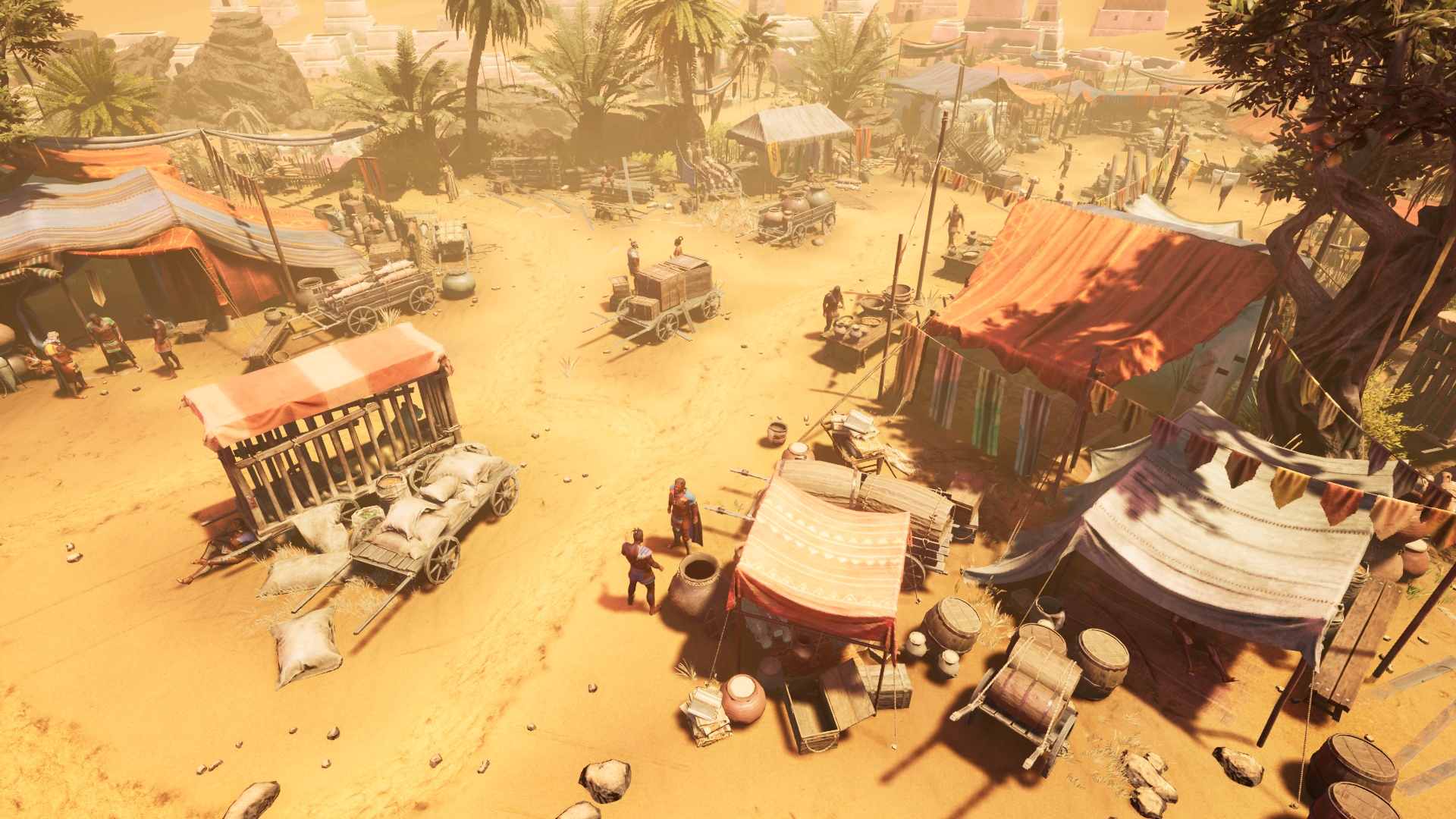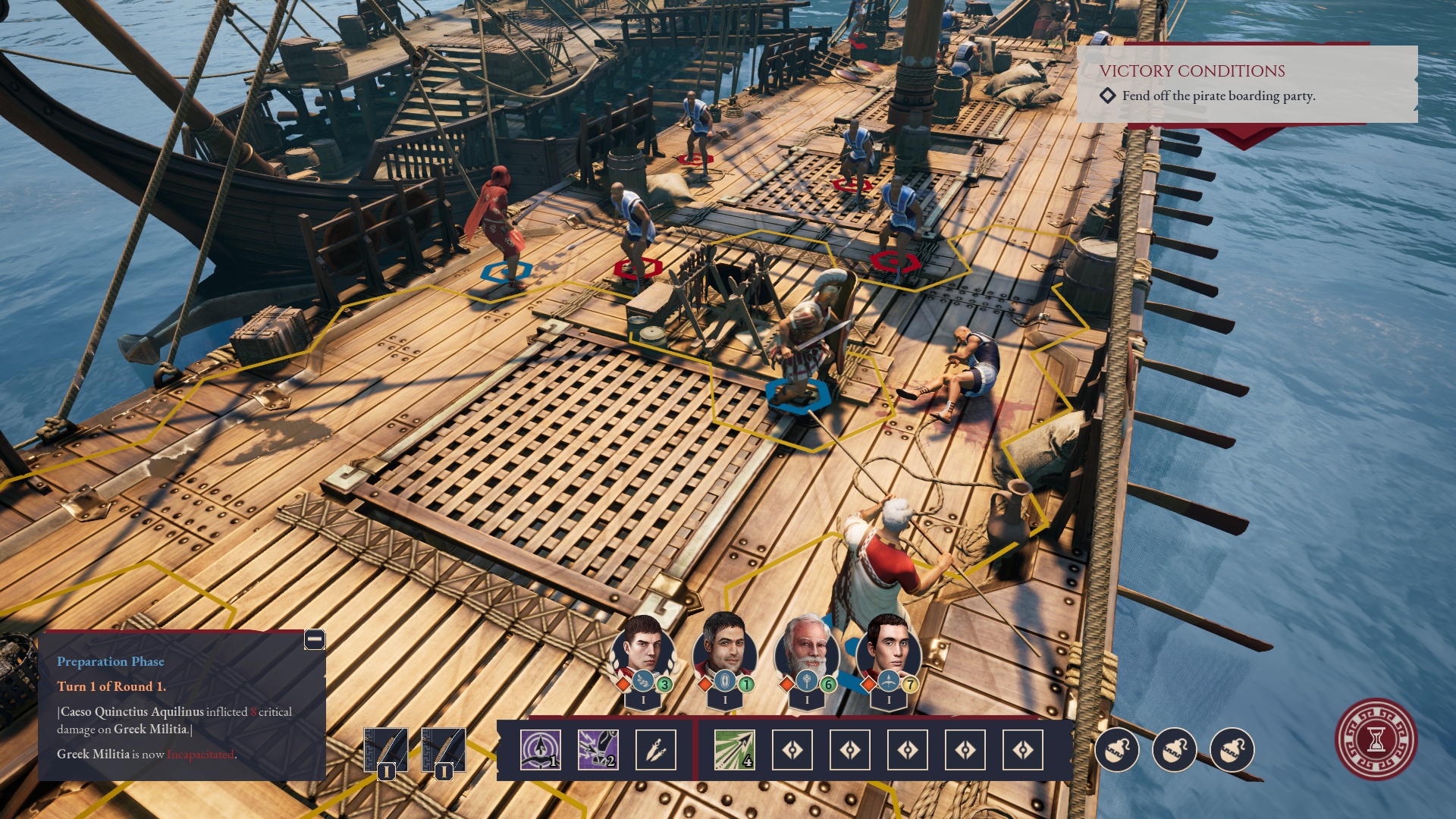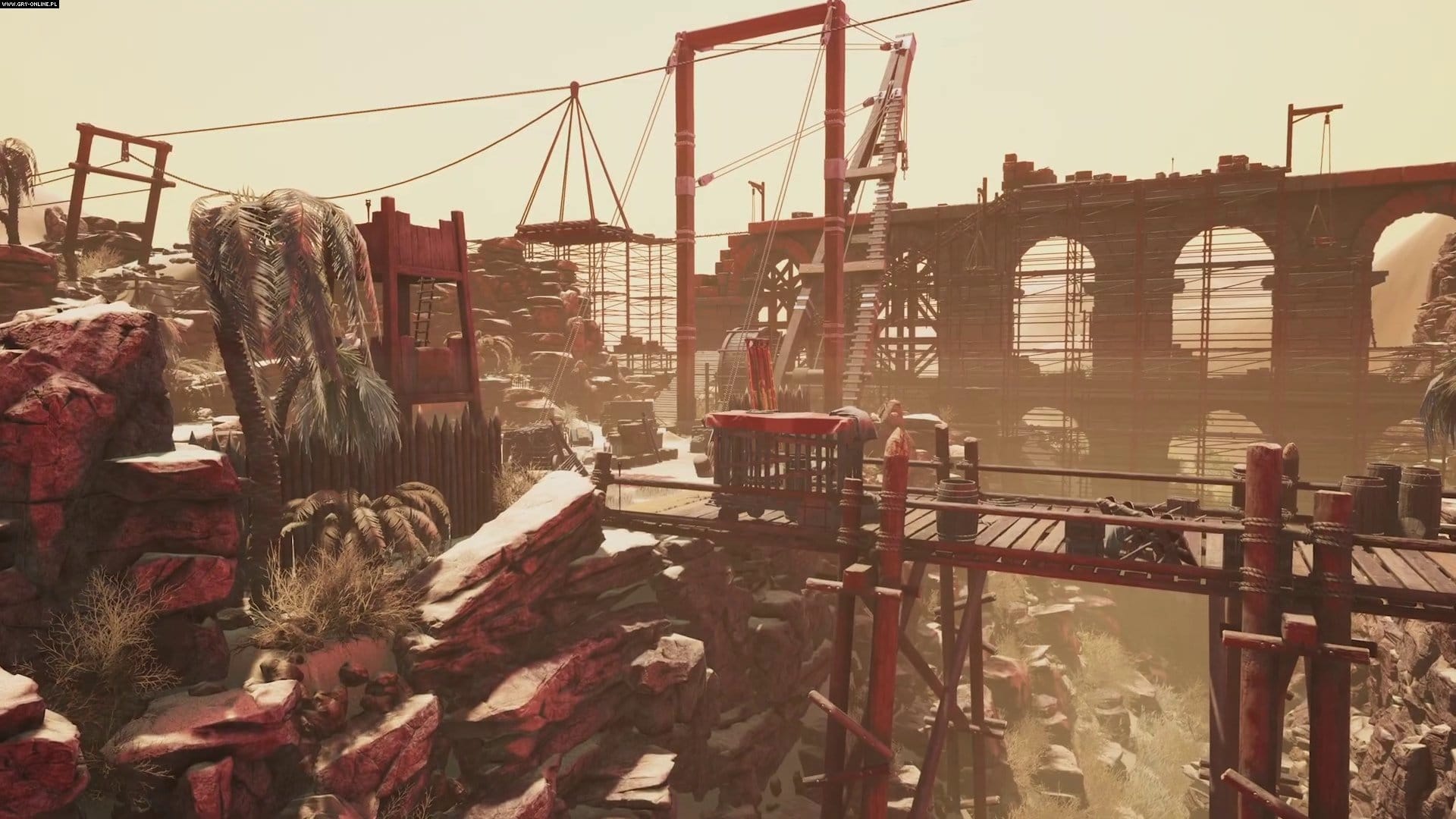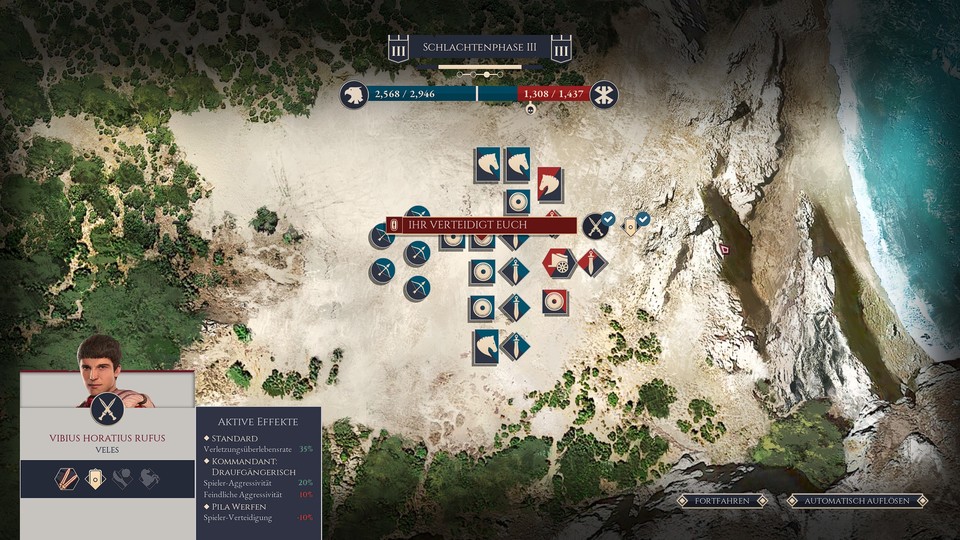In the time of Cicero and Caesar, you fight power struggles for the future of the Roman Republic. This is tactically challenging – and entertaining for a long time.
First of all, a question for all those who consider themselves fans of the Roman setting: Do the names Titus Pullo and Lucius Vorenus mean anything to you? Whoever nods knowingly now may read on, whoever doesn’t may also read on, but will get a homework assignment. Make sure you watch the series “Rome” from HBO. It’s still from the pre-streaming era, but it anticipated the trend towards blockbuster-style series production and is, in my opinion, the best thing ever produced on the subject of Rome besides “Gladiator” and the old “Ben Hur”.
I mention this partly as well-intentioned advice and partly because I am sure that the Danish developers at Logic Artists also know and love this series very well. Because a lot of things in Expeditions: Rome remind me of it: the basic narrative style, the time frame in which the game is set, as well as clear borrowings of individual missions from the series.
The most relevant overlap, however, is the quality. When Expeditions: Rome is released on Steam, GOG.com and the Epic Store on 20 January 2022 for 45 euros, you can look forward to an extremely successful tactical role-playing game set in the final phase of the Roman Republic. You should still read the review, because despite the praise, not everything is perfect in the Danes’ opus magnum.
Table of Contents
All beginnings are difficult
The beginnings of all things are small, as was already known to Cicero, who, like several other historical figures of the late Roman Republic, makes appearances in Expeditions: Rome. The quote applies to the game in two ways. Firstly, because of the studio’s development. Rome is the third part of the Expeditions series after Conquistator and Viking, which has steadily developed in terms of gameplay as well as technically and visually, as can be seen from the reviews. And on the other hand, the quote fits the game itself, which starts off a little weak and then keeps getting better and better, thus coming across as anything but “frontloaded”, contrary to the trend.
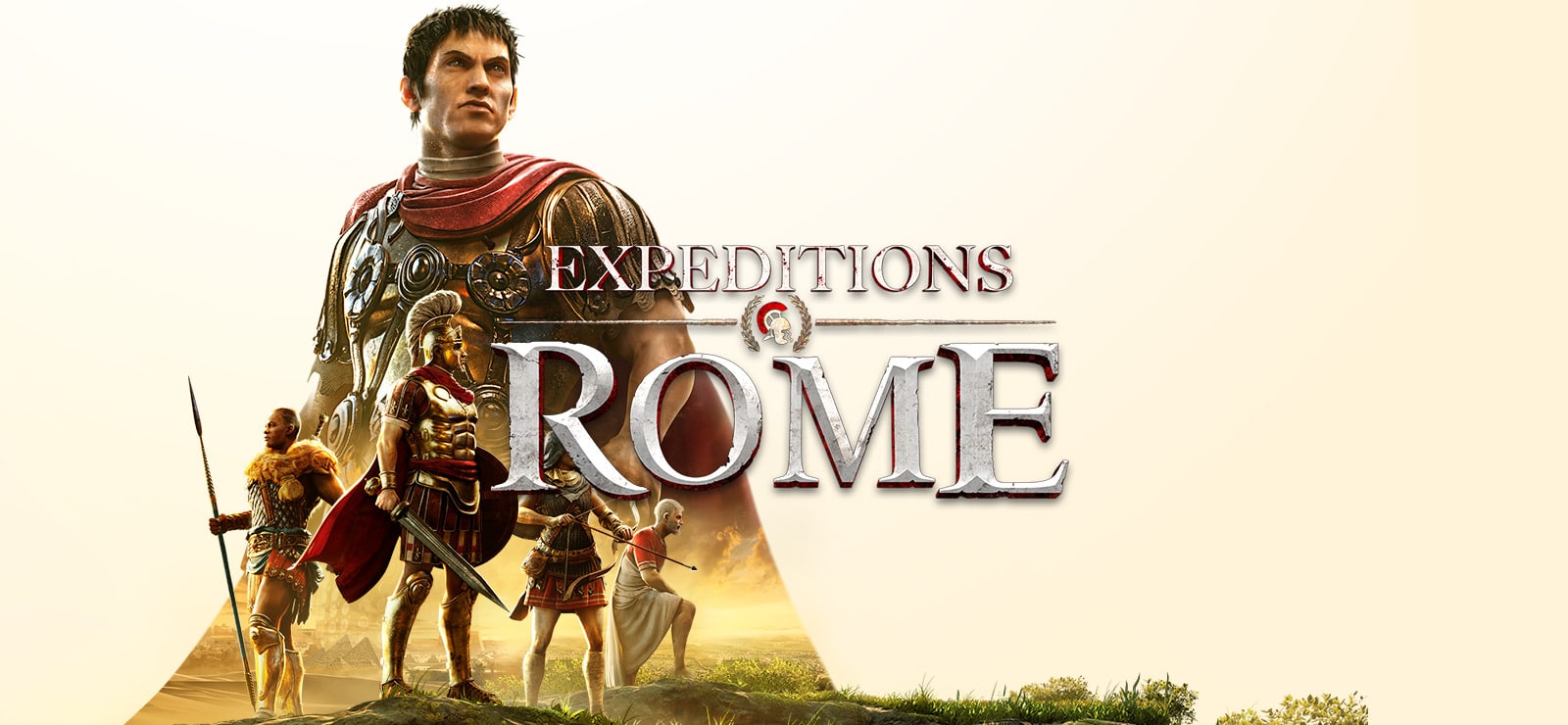
I fought, I talked, I conquered
Expeditions: Rome begins with a cliché-laden story. Your character (I chose a woman) must flee Rome because your father has been murdered. You join the consul Lucullus, a friend of your father, who is fighting Greek pirates on Lesbos. In the following, you experience a story based on the rise of Caesar, which interweaves historical events with fictional ones, very similar to the aforementioned TV series “Rome”.
The small island of Lesbos serves as a tutorial for the next one to two hours and introduces you to most of the game systems, of which there are essentially four:
- The tactical battles from the top-down perspective are the heart of the game. Through variety in mission design and diversity of class abilities, they carry the game over the immense playtime of up to 50 hours.
- The overarching progression takes place on a campaign map that you can think of as a cross between Total War and Heroes of Might and Magic. You ride around the map while time passes. When you’re not on your way to the next mission, you’ll find experience points as well as treasure and supplies that you can use to equip your characters and craft. Random events also occur from time to time.
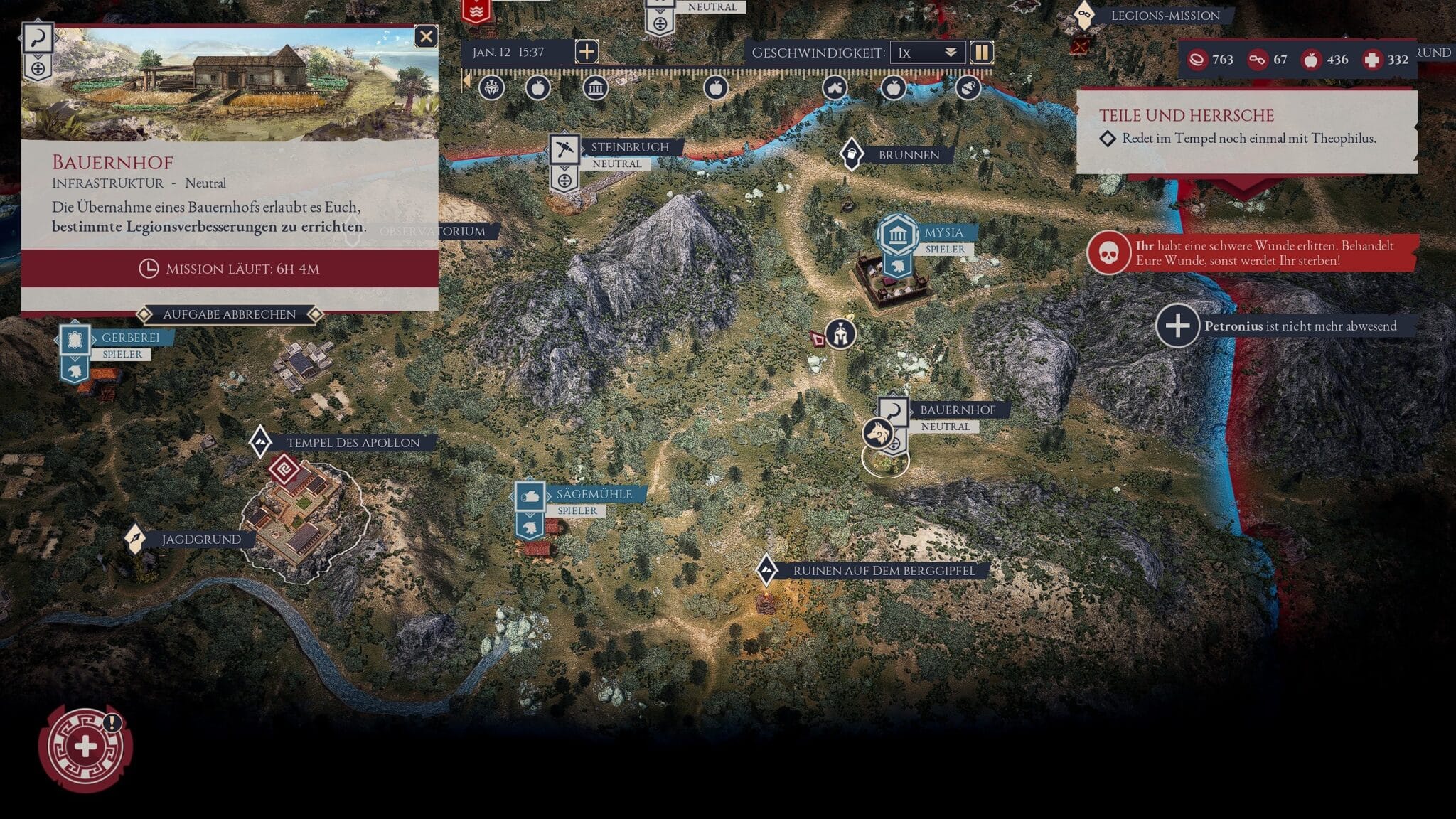
- When you are not fighting, you are busy with dialogues (the speech of all interlocutors is set to music). You will learn more about what is happening in the world and about the secret machinations surrounding the murder of your father. You also get to know your companions better. Again and again, the game lets you make decisions that have an effect on the further course of the game.
- Your legion camp is your mobile base, which you can upgrade. It’s where you recruit new party members, manage your existing companions and craft. You also manage the legion itself here, which must be sent out on missions on the world map to conquer sectors there. The Legion’s battles are separated out into a small mini-game.
Special command instead of troop leader
Of course, you will spend most of your time with the classic turn battles. Since small group battles with a few heroic figures don’t necessarily fit the setting of Rome with its disciplined legions ideally, the developers have come up with a trick to explain why you are always on your own. You become part of a kind of special task force, the Speculatores.
Whenever something needs to be done for which an entire army seems unsuitable, this motley crew comes into play. Soon, however, you will also be given command of a legion to conquer sectors on the world map. In this way, more flair is maintained because it is not just a few heroes who do everything on their own. The real army is always somewhere in the background.
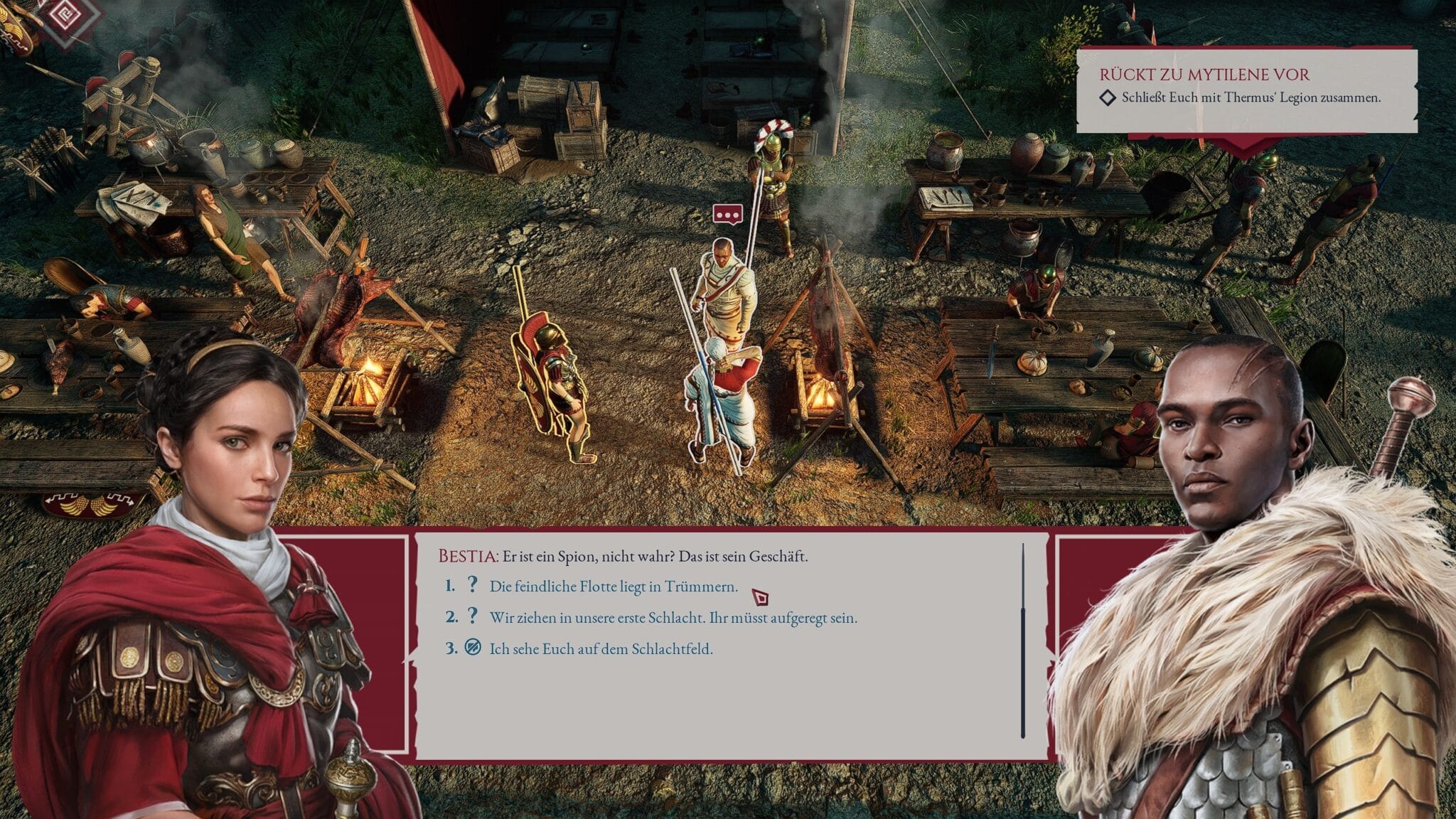
You can always chat with your companions, who will either comment on your decisions or their past. Causa Femina
Of course, some will indignantly point the finger at the fact that a woman could never have led a legion. That’s true, but Expeditions: Rome makes an effort to address this issue within the context of the times. If you are playing as a woman, this will be addressed by the characters in the dialogue. Many have a problem with this at first, but it does not have any disadvantages in the game.
Your patron Lucullus keeps the whole thing under wraps anyway and only comes out with it at the moment of triumph, confronting the sceptics of the nobility and the senators with the provocative truth at the perfect moment. In this way, the play preserves the historical tone and at the same time makes it possible to play as a female character.
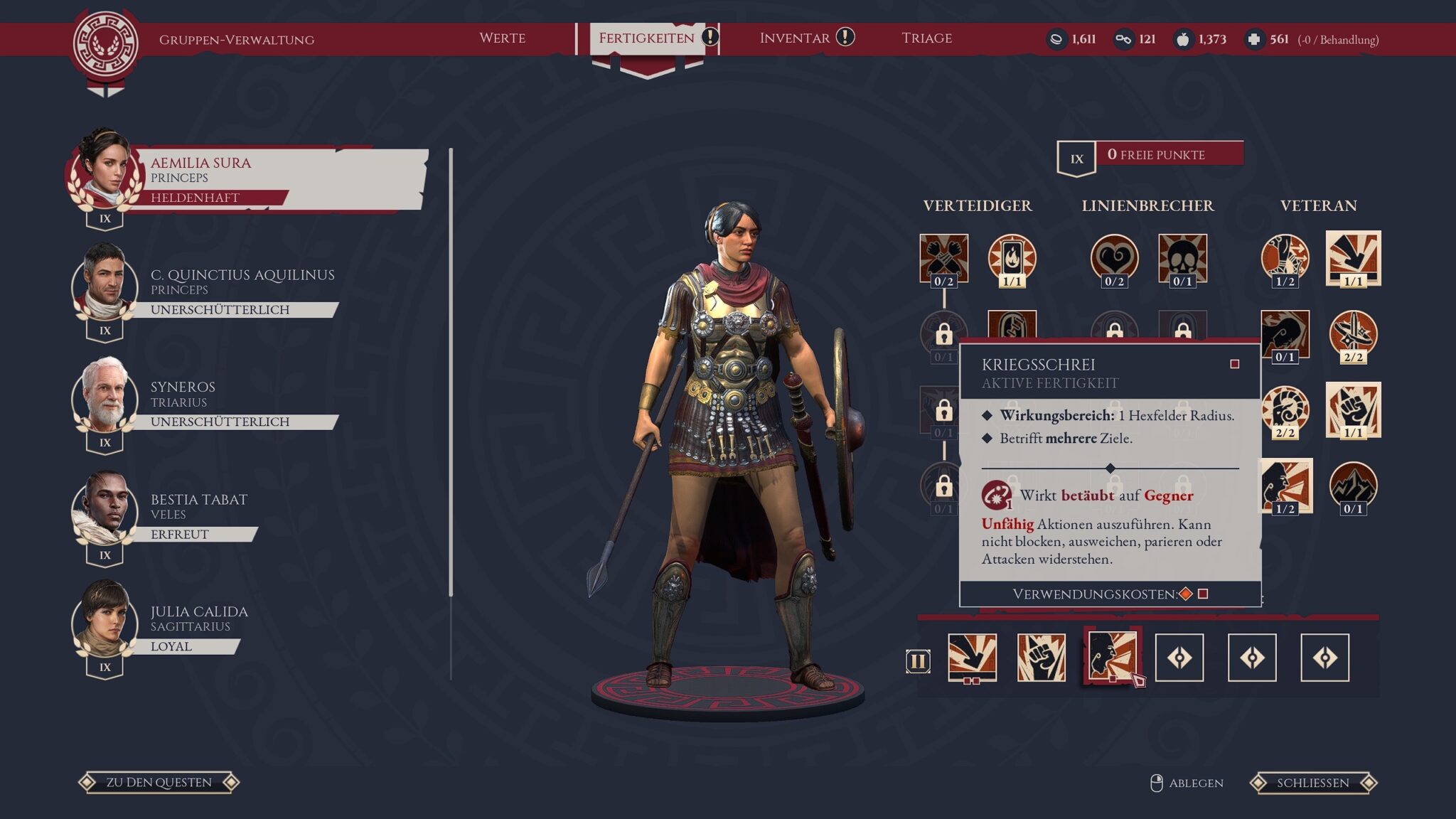
I chose a female main character The writing is not at top level
The writing, however, is less clever in the first hours of the game, where it is anything but top-notch. There are rather predictable plot elements (“We’re going to walk into a trap!” – “Nonsense, I’m the commander, I know better!”. Result? Walked into a trap.), silly twists (An agent whose dialogue portrait is clearly female and speaks in a female voice turns out to be a woman after a while, completely by surprise!) and stereotypical companions (ex-gladiator who always wants to kill everything; crass, “mysterious” female agent).
The texts and dialogue are also relatively often rather inconsequential. The game rarely exudes wit and esprit. As a result, I am completely indifferent to my companions and most of the plot characters at the beginning. But – as indicated – this improves. The more time passes, the more the story picks up speed and the more the profile of some of the companions grows, and I slowly grow fond of them. Expeditions: Rome can’t keep up with “Gladiator”, but it has other qualities.
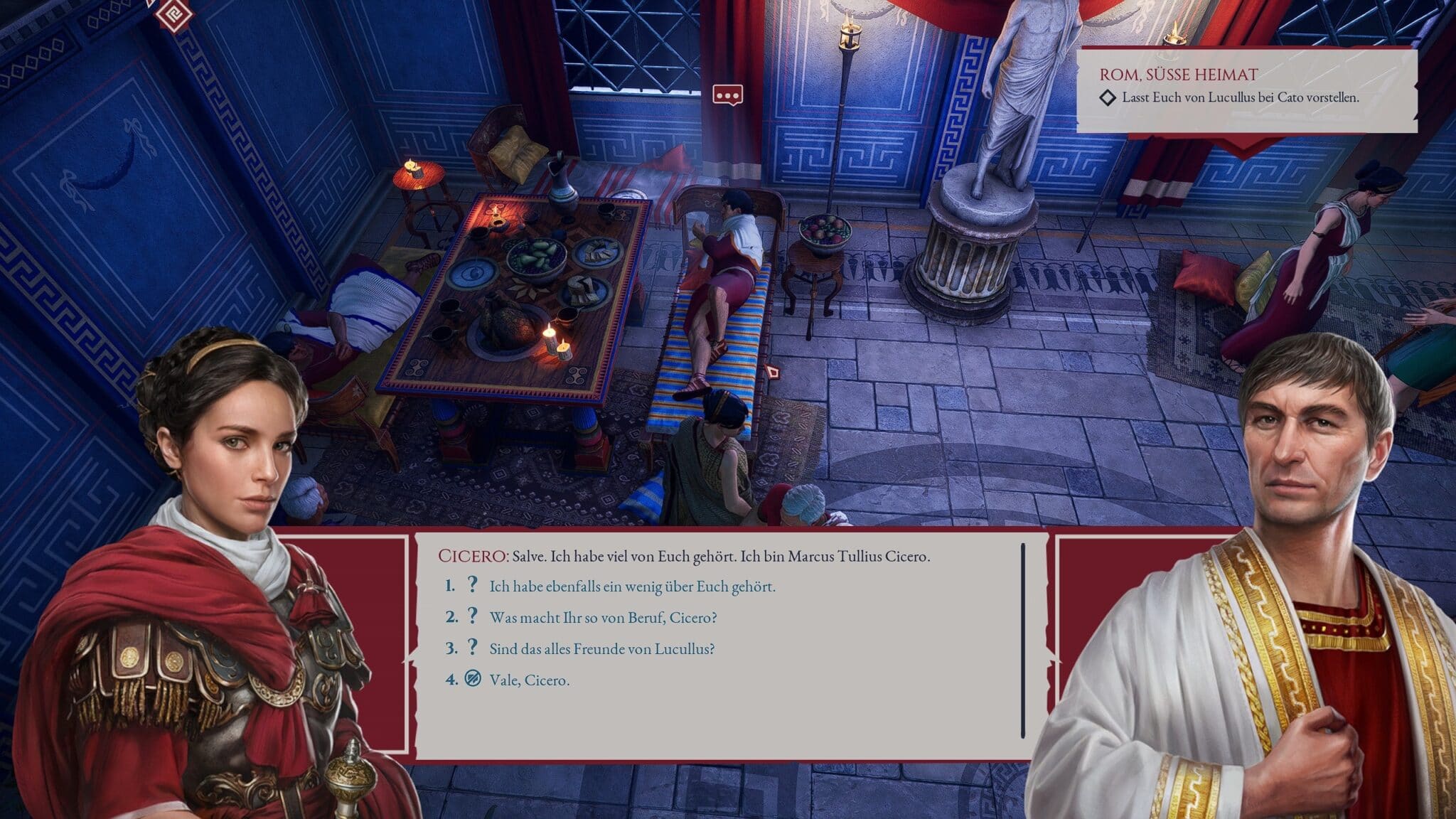
Sometimes you also meet historical personalities. Like here on Cicero, who is lying comfortably together with Cato … The combat system is complex but doesn’t overwhelm
Like the turn-based battles, for example. Each character has one of four combat classes Princeps (tank with sword or spear and shield), Triarius (support with lance or staff), Sagitarius (archer) and Veles (damage dealer with two weapons). These classes in turn have three specialisation trees in which you could invest relatively freely points of level-ups. The Triarius, for example, can specialise in combat support or healing or armour damage.
The combat system gets depth from an interplay of movement range, all possible abilities, status effects (bleed, stunned…) as well as life, armour value and shield strength. Anyone who has ever played a tactical role-playing game of this kind will quickly find their way around here.
Armoured units only lose life energy if the damage exceeds their armour value or if the armour is shredded with special attacks beforehand. Shield Strength, on the other hand, blocks damage of any amount (except piercing damage and effects) as long as there is even one point of Shield Strength left. It is also partially replenished after each round. This means that an enemy with a shield should always be attacked by more than one character in a round to cause any significant life damage. Shields also prevent all direct damage from arrows.
Solid mission design that doesn’t win an innovation award
Because almost every mission has a unique map, often with interactive objects around (such as oil, fire, destructible obstacles), there’s plenty of variety for a long time. The mission design itself would probably not win an innovation prize, but it does its part. Sometimes you have to escape from a dangerous situation, sometimes you have to destroy certain objects. Or you have to hurry to get to a certain spot or eliminate a person due to a limited number of rounds.
The pacing of the missions is quite good. Just when the tasks are getting a bit monotonous, the first chapter highlight comes with a multi-part battle that is fully convincing both in terms of gameplay and staging.
The antique is pretty, but not perfect
Apropos, as you can see from the pictures, Expeditions: Rome looks really pretty too. Personally, I especially like the armour and the detailed environments with their beautiful play of light.
The balancing, on the other hand, is not always perfect. This is a shortcoming that runs through the entire game. I set the difficulty level for my game to “normal”, i.e. the second of four levels, and regretted it a little. For reasonably experienced tactics players, this difficulty level is too easy. And what is even more serious, it makes some systems (for example provisions and the legion battles) largely obsolete.
necessarily must always be good. On large battlefields, enemies sometimes take an annoyingly long time to move because the game insists on playing all animations in real time. For example, if a group of enemies wants to climb up a ladder one after the other, it looks quite fancy because the animations in the game are consistently super. But it takes what feels like an eternity until everyone has reached the top.
The Legion conquers the world
The battles and dialogues are connected by the campaign map and your legion camp. On the world map, you go on quests, collect resources and command your legion, which you receive after the tutorial. You use it to conquer enemy sectors, which are followed by special pacification missions. You can then use the legion to capture the sector’s resources and use them for your own purposes.
Use raw materials such as wood, metal and stone to expand your camp. This will gradually unlock upgrades and improvements, such as the hospital for treating the injured (untreated characters can die permanently!). If you lose central characters, the game ends). Other upgrades allow you to renew tactical items, such as a pilum that allows a character to deal extra damage once per battle. And of course there is also a forge for making or improving particularly good equipment.
In the camp you can also recruit praetorians to complete your squad for the round tactics missions. They function in the same way as your companions, but they have no background story or interaction possibilities of their own.
Armies compete in mini-game
On top of that, you also hire Centurions here to lead the Legion battles for you. When you have your legion capture a new sector, a mini-game begins, the outcome of which depends on the strength and morale of the soldiers and the skills of the centurions. Four times per battle you are also allowed to use a stratagem (testudo, wedge formation, throw pilum and so on), the choice of which also affects the battle.
The idea itself is great because it gives the feeling that there is actually a real army behind the whole special forces thing. This does the Roman Army flair good. But unfortunately it sometimes feels like a foreign body in the game because it just doesn’t seem quite mature yet. The action in the battles runs like on rails and my few decisions hardly have any visible influence.
For example, the game tells me at the beginning that different centurions are suited for different battles. But I always used the same type throughout the first chapter, because it was always predicted to have the best chance of success. And the whole thing was not challenging either. I won almost every battle with the left. That could ultimately also be due to the difficulty level, which shouldn’t be the case.
Decisions have consequences
Despite the criticism, it should not be lost how much love has gone into details. The story always makes a point of incorporating facts and quotes from real history. Whenever a connection somewhere is not clear, the dialogues offer explanations.
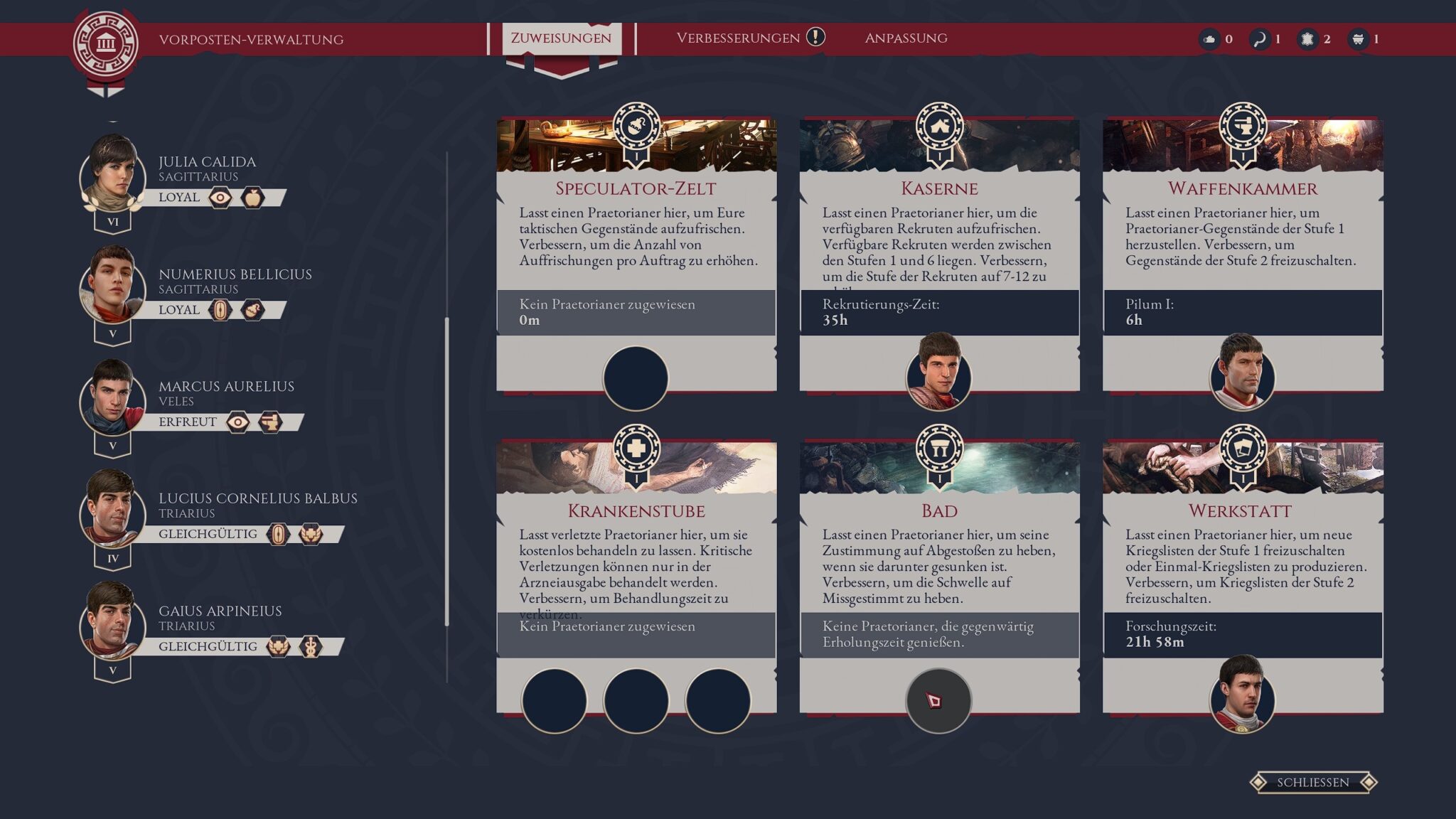
In the legion camp you manage your praetorians (generic companions) and friends. Here you also craft new items and heal the injured. And the dialogue system is also basically satisfying because the game takes the trouble to revisit decisions made. For example, I could decide to arrest an enemy general instead of killing him. Later, in negotiations, I could then trade him for a whole manipel of soldiers and then face him again a little later. And then, of course, there are the really big decisions about the future of the republic …
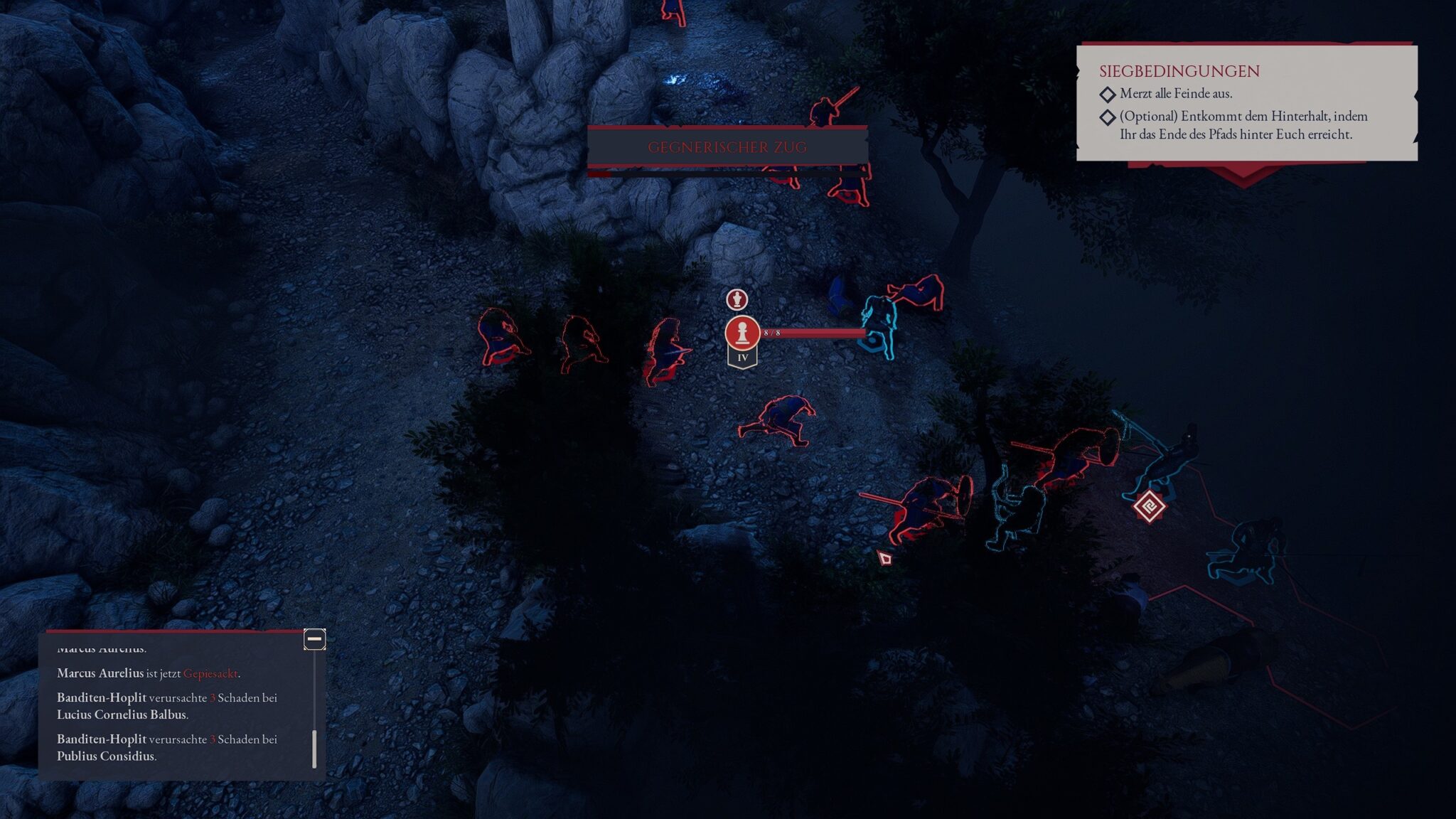
Before a mission, you decide who should come along. However, things sometimes turn out differently than expected. It’s fun even without being perfect
There are many more examples of minor balance deficiencies, mechanics that could be improved as well as clever details and exciting game elements – but they don’t fit into this already overlong review.All in all, Expeditions: Rome is a really good game and that despite many minor flaws and missed opportunities. The core gameplay around the battles is a lot of fun and the developer always shows a sense of proportion so that none of the game elements become annoying. The only thing you shouldn’t expect is a story miracle. But you can expect about 40 to 50 hours of fun.
Editor’s conclusion
No, Expeditions: Rome is not perfect. There are a lot of little things that are not ideally balanced, irrelevant or even a little annoying. Still, I liked the title and always enjoyed playing on. This is due to the indestructible round tactics, the good graphics and somehow also the story – although I have to criticise it clearly in the same breath. I have definitely seen better written dialogue and more surprising twists. Still, the game doesn’t lose me. For one thing, it doesn’t constantly fill me up with endless texts, and for another, the decisions give me the feeling that I actually have a bit of a say in what happens. And then, of course, there’s ancient Rome, a setting that you have to like – as I do – to really enjoy Expeditions: Rome.

